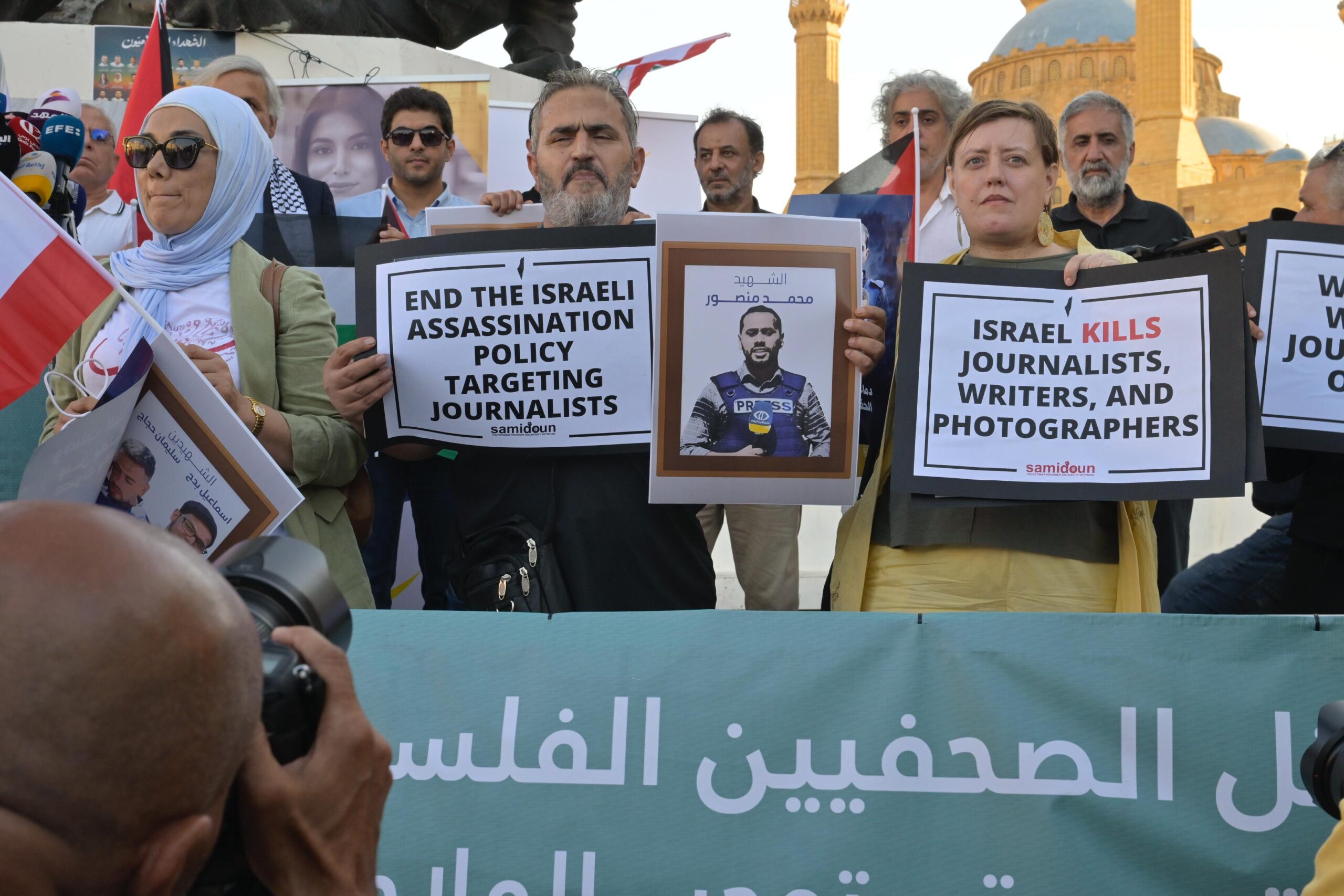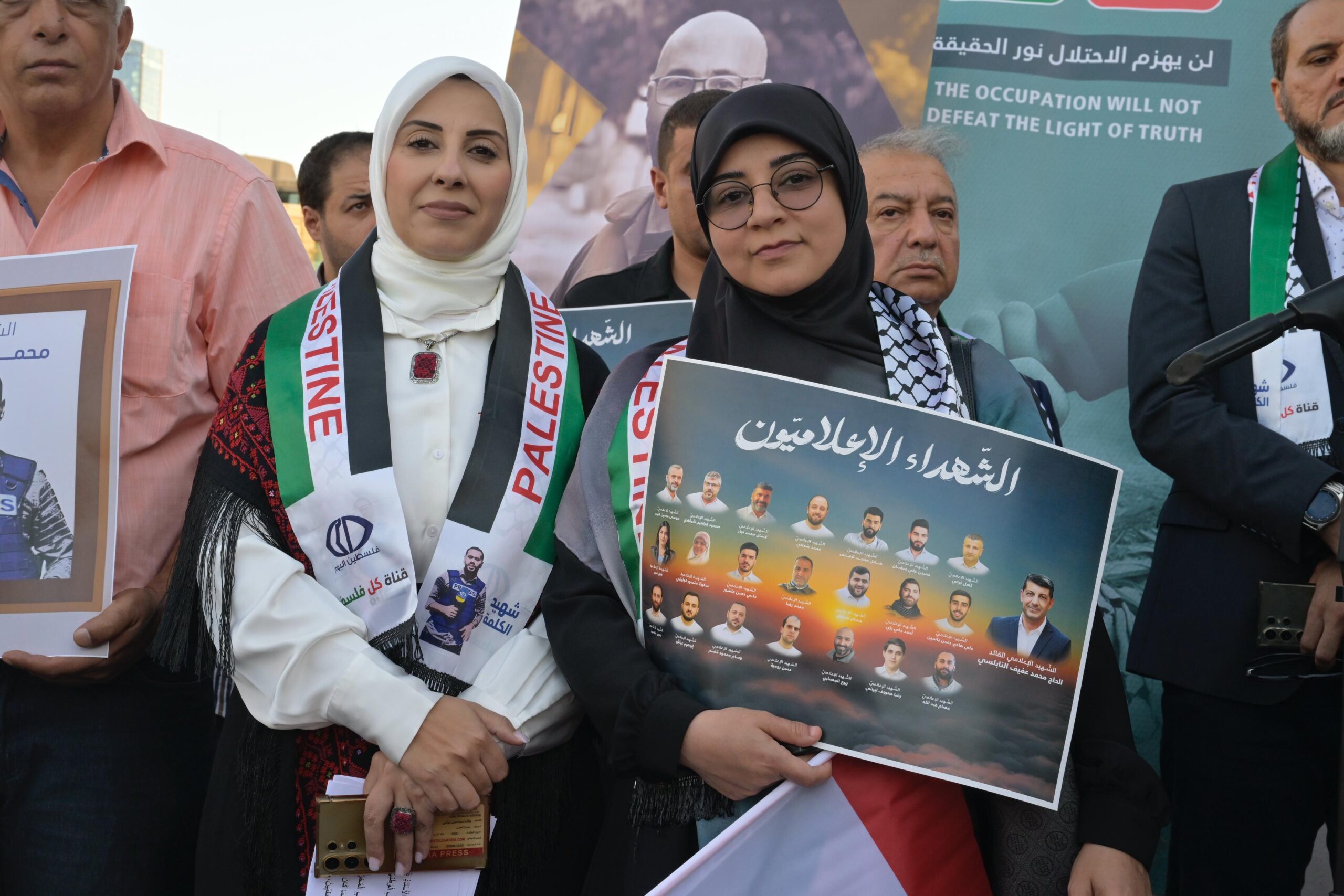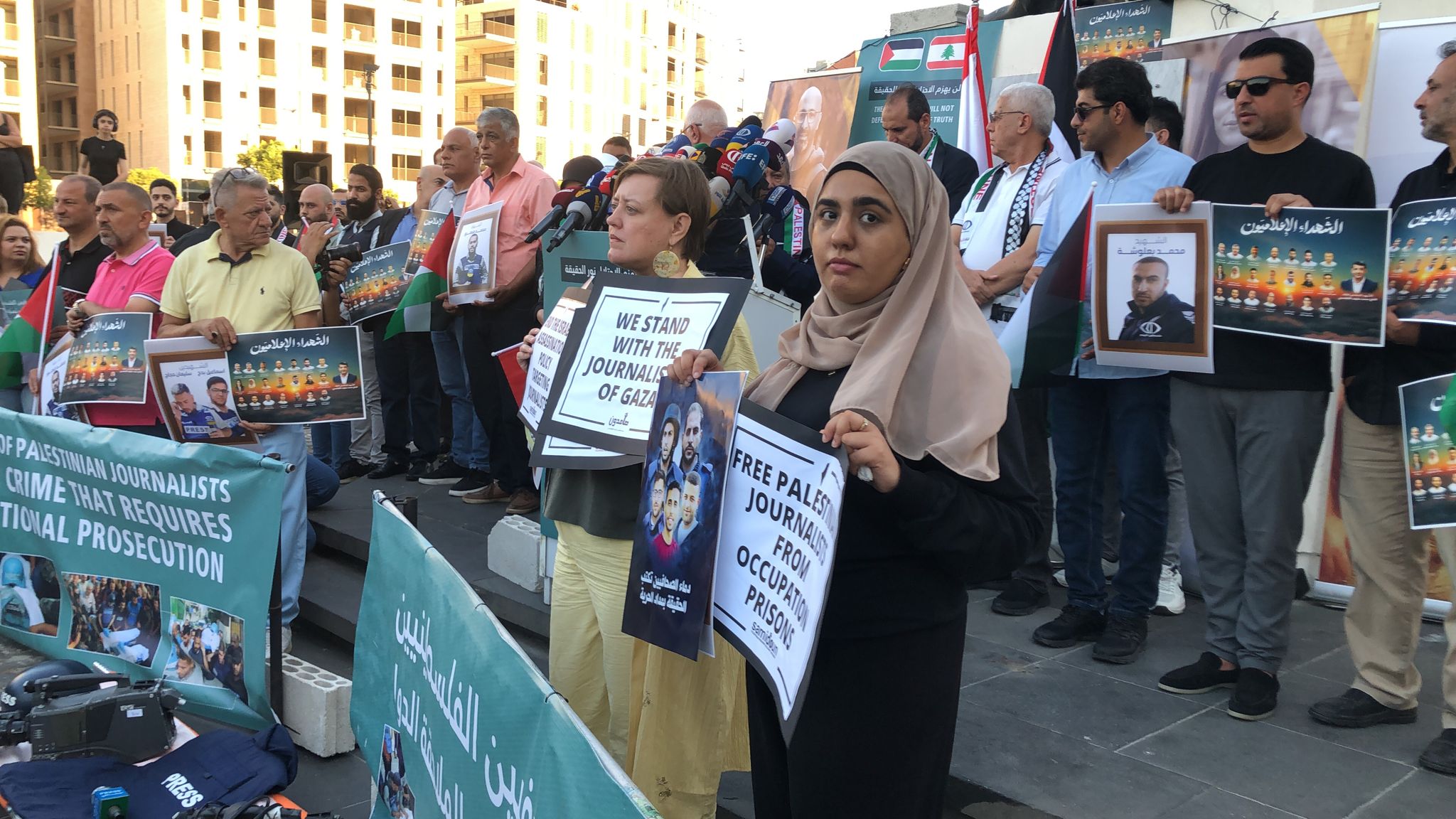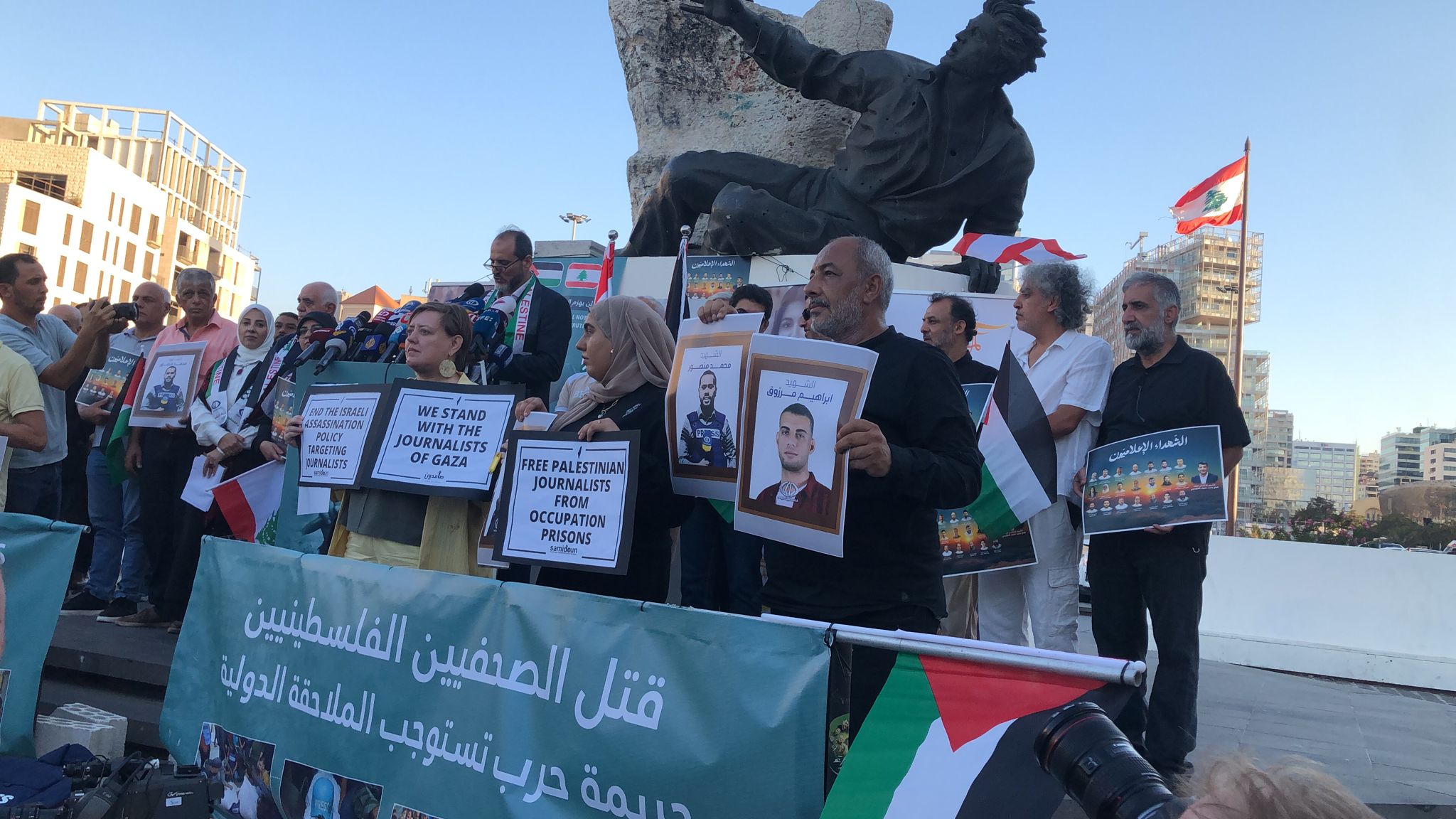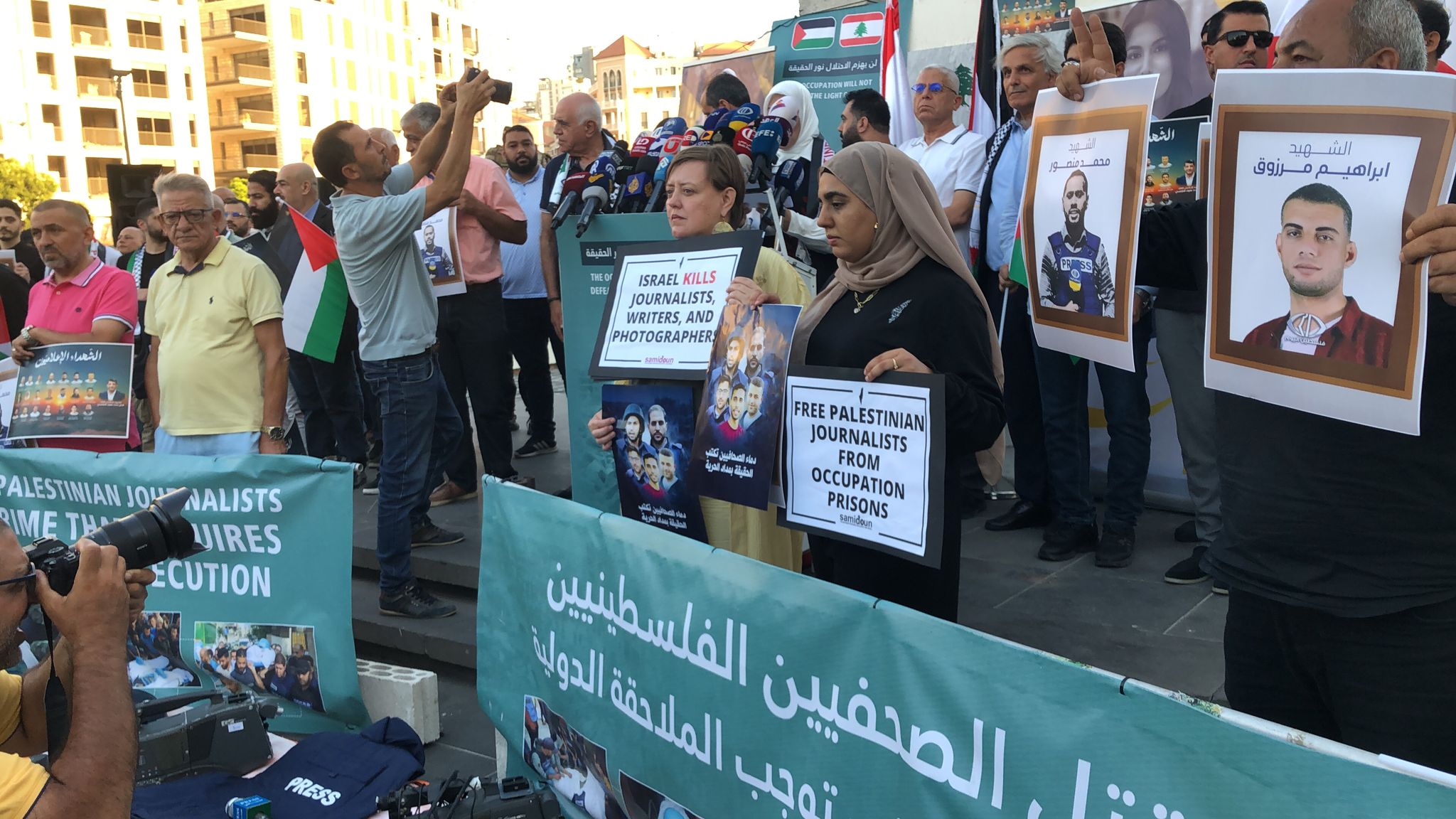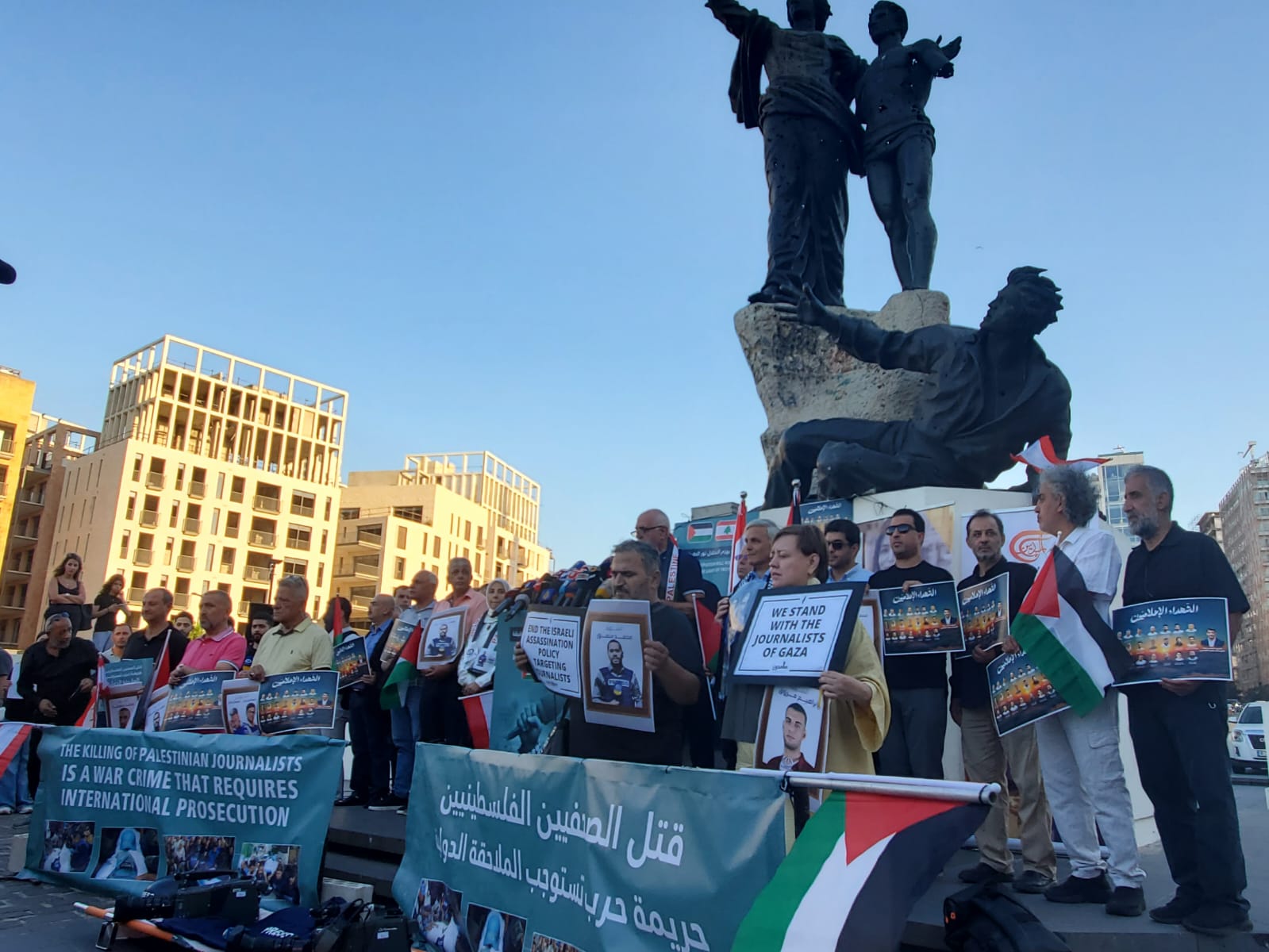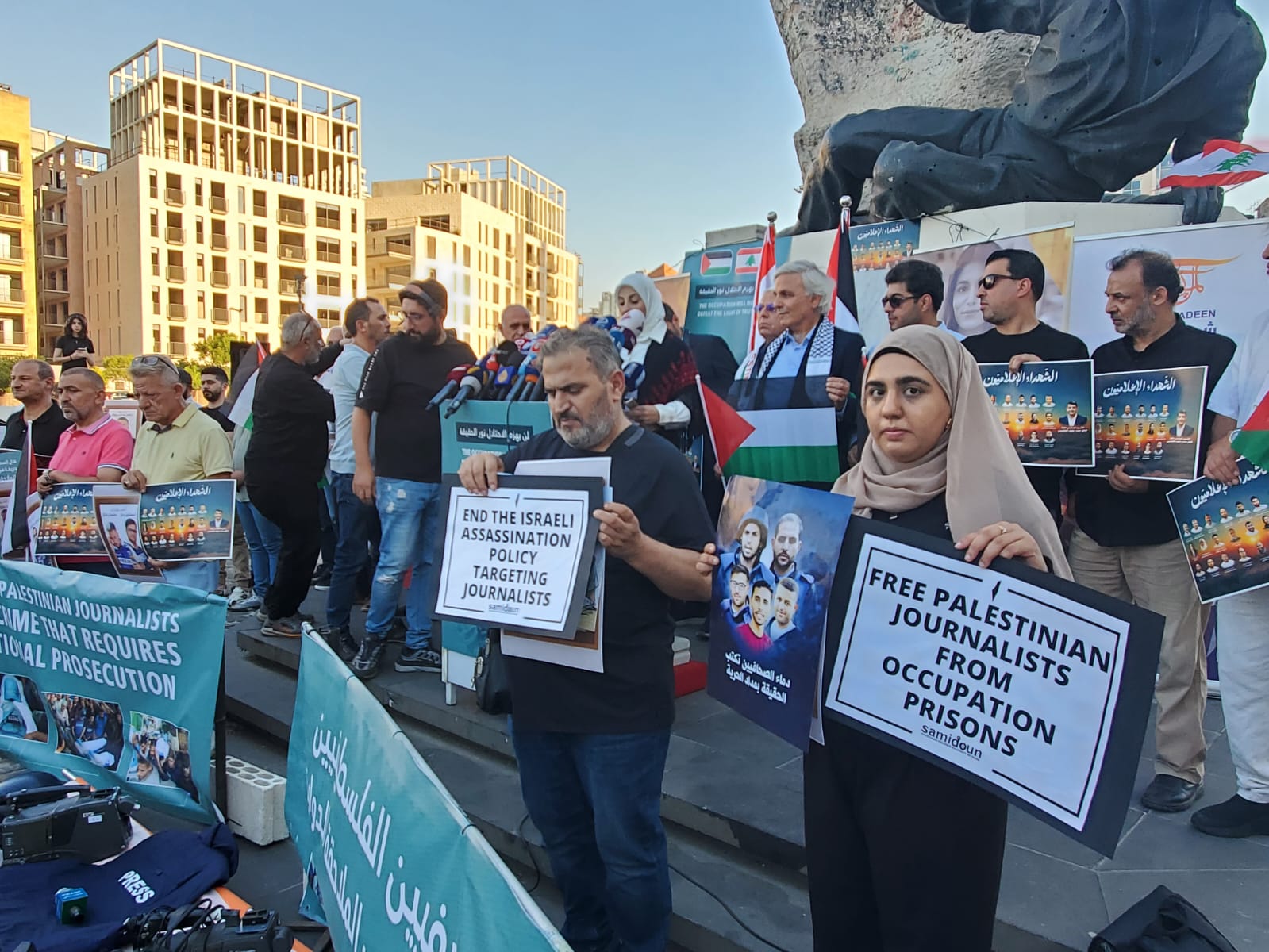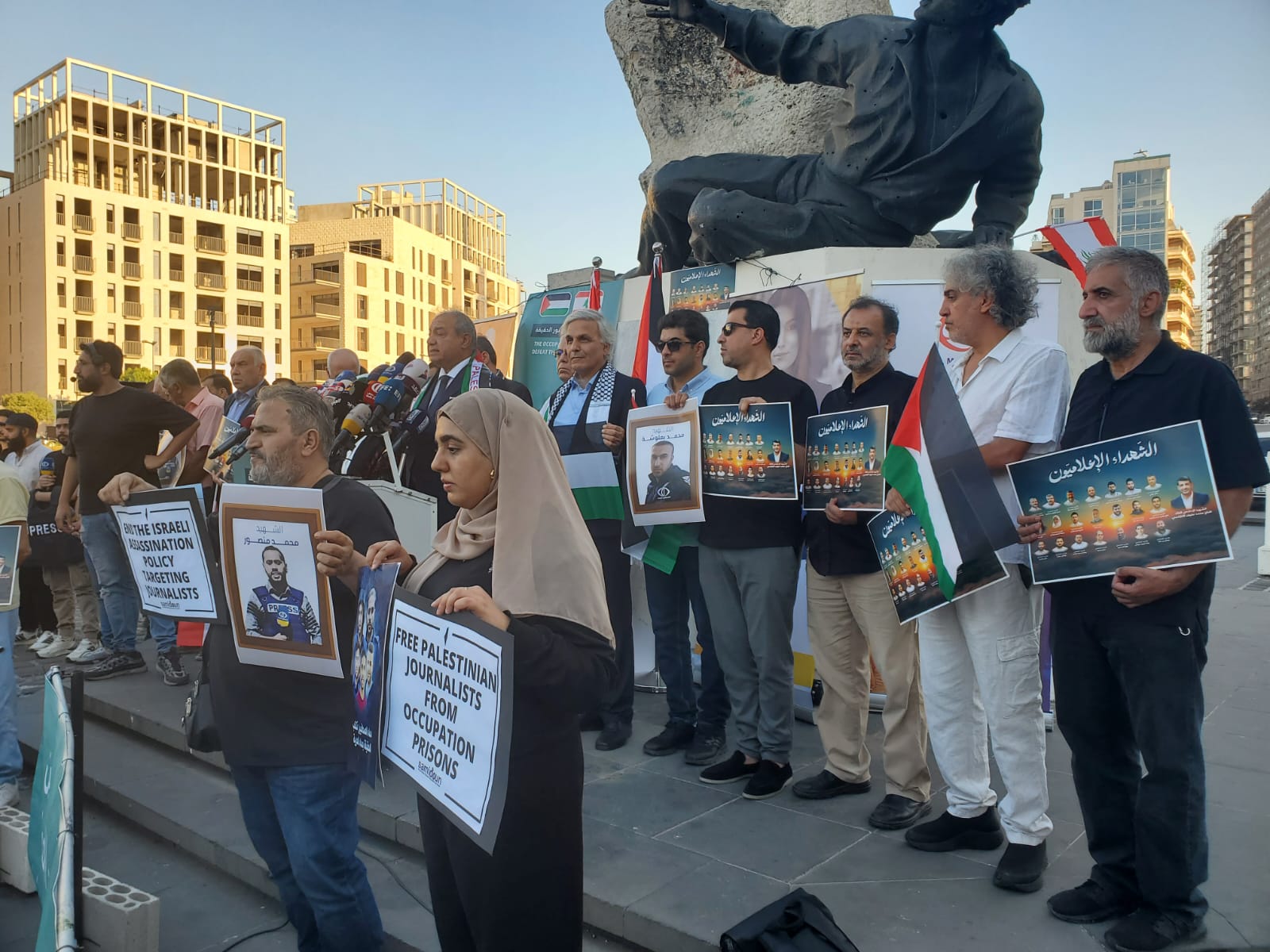 Today, 7 October 2025, we mark the second anniversary of Al-Aqsa Flood, the great crossing of the Palestinian people and their resistance: the day that changed the world. Two years later, amid the horrific genocide carried out by the Zionist regime with the full involvement and joint responsibility of the United States, France, Britain, Germany, Canada and their fellow imperialist powers, it remains clear that the path forward forged by the fighters on 7 October 2023 is the path to the liberation of Palestine from the river to the sea.
Today, 7 October 2025, we mark the second anniversary of Al-Aqsa Flood, the great crossing of the Palestinian people and their resistance: the day that changed the world. Two years later, amid the horrific genocide carried out by the Zionist regime with the full involvement and joint responsibility of the United States, France, Britain, Germany, Canada and their fellow imperialist powers, it remains clear that the path forward forged by the fighters on 7 October 2023 is the path to the liberation of Palestine from the river to the sea.
The seventh of October is now and will remain a great revolutionary occasion, a moment that is celebrated by the oppressed peoples and nations of the world as a historic moment in the anti-colonial and anti-imperialist struggle, and which will live on after liberation as a milestone in the path to victory. The red triangles of the Palestinian resistance have become international symbols of the ability to defeat the oppressor, and the legendary heroism of the Palestinian resistance has been written indelibly into the history of global revolution.
On 7 October 2023, the Palestinian people and their Resistance, led by the Izz el-Din al-Qassam Brigades, demonstrated to the world that it is in fact possible to breach the armored structures of the Zionist regime, set up with the most advanced technologies and with billions of dollars in imperialist weaponry, to defeat the soldiers of colonialism and racism, and to roam freely in occupied Palestinian land. Indeed, “Israel” can be defeated – and will be defeated.
With every bulldozer tearing down the fences, every tank mounted by the people it aimed to shoot and kill, every military base and intelligence office trampled by the fighters of the resistance, and every paraglider sailing toward the dawn of liberation, every march forward by the sons of those exiled from this very land and denied their right to return, the Palestinian resistance carried out a brilliant, strategic military operation targeting the military bases surrounding Gaza targeting the breaking of the siege and the liberation of Palestinian prisoners.
The effect was immediate, and not simply because the resistance imposed remarkable losses on the colonial forces who had been, for 75 years prior, massacring Palestinians, forcing from their land and confiscating it, constructing settlements, imprisoning and torturing tens of thousands of prisoners, destroying their villages, sacred places and holy sites, denying their right to return, and carrying out an ongoing genocidal assault on Palestinian and Arab existence. It was because on October 7th, with the launch of Al-Aqsa Flood, the Palestinian resistance made clear that it was capable of liberating Palestine and that a Palestine free of Zionism was on the horizon – and, furthermore, that an entire Arab nation and broader region free of imperialism was also entirely possible and within the grasp of the people and their mobilized and organized resistance.
Imperialism and Zionism are the Reasons for Genocide
Let us be clear: The proximate cause of the Zionist-imperialist genocide targeting the Palestinian people was not the heroic operation of October 7. The cause of the genocide is Zionism and imperialism and their vicious commitment to maintaining colonial domination in perpetuity. Zionism has always been not only a form of racism and racial discrimination, as was once correctly recognized by the United Nations, but an ideology of genocide, and one created hand in hand with European and, later, U.S. imperialism.
Palestinians are not targeted for genocide because they have continued and escalated their ongoing revolutionary struggle, but because the enemy they confront is a genocidal one, that has taken a nearly uncountable toll from the peoples of Latin America, the Caribbean, Africa, Asia, the Arab nation and the broader West Asian region over decades of destruction, colonial extraction, invasions, wars, deliberate underdevelopment and brutal subjugation.
This is borne out in Gaza today, where over 2.4 million Palestinians are subjected to the genocidal onslaught, displaced from their homes. Over 67,000 Palestinians are confirmed martyred, with nearly 10,000 more missing under the rubble. Over 90% of the Gaza Strip has been destroyed. The occupation has destroyed the health care and education systems in Gaza, targeting each hospital and university one by one; targeting aid workers, engineers, health workers, and security personnel for assassination, abduction, torture and imprisonment. 304 journalists and media workers have been targeted for reporting the truth about the genocide to the world, a truth that has outraged global public opinion and led to the international popular isolation of the Zionist regime and millions in the streets.
Today in the West Bank, where the resistance has been subjected to severe repression and mass imprisonment, and where the Palestinian Authority security forces continue to engage in “security coordination” with the occupier, the occupation is engaging in massive, large-scale land theft, settlement construction, attacks on Palestinian villages, and open declarations of the planned annexation of huge swathes of Palestinian land. All of the PA’s complicity has not stopped the clear and overt declarations by the Zionist regime, including its notorious fascist finance minister, Bezalel Smotrich, that it will never cease its theft of Palestinian land, attacks on holy sites, mass arrest campaigns, and rampant killings.
Confronting the Enemy Camp
It is clearer than ever that the enemy camp facing the Palestinian people laid out in the Strategy for the Liberation of Palestine in 1969 is the same genocidal enemy that it faces today: “Israel,” the Zionist movement, imperialism, led by the United States, and the Arab reactionary regimes, with the caveat that the Palestinian Authority in Ramallah, at its leadership level and through its commitment to “security coordination” with the Zionist regime, is now lined up with that complicit Arab camp.
Immediately upon 7 October 2023, upon the launch of the great flood, the imperialist powers identified this operation of the Palestinian resistance as not only a significant blow to the Zionist project, but a herald of a new advance in the resistance camp in the region, that with its steadfast allies, could break the stranglehold of imperialism on the region that has long deliberately undermined Arab and regional development, self-determination and true liberation. The leaders of the imperialist powers rushed to Tel Aviv to declare that their fortress was in place and immediately began shipping billions of dollars, Euros and pounds of weaponry to the Zionist regime to launch its escalated genocide in Gaza; they sent their generals to join its war rooms, and their spy planes to provide them surveillance of the Palestinian resistance to target their assault.
The rise of overtly fascist and extreme right forces within the imperialist powers is directly tied to their open embrace of genocide in occupied Palestine and repeated proclamations of support for “Israel”; indeed, they view it as a model implementation of racial supremacy. The genocide has been intertwined with Big Tech corporations, military contractors, shipping and logistics companies, and surveillance corporations, making the vicious, anti-human reality of capitalism visible to all. The U.S. aggressions against Venezuela and Iran are part and parcel of the same attempt to assert colonial domination on behalf of an empire in decline and unwilling to exist in a multipolar world as is its full-fledged partnership in genocide in Palestine.
At the same time, those who fight fascism globally stand with Palestine. Now, more than ever, the Palestinian flag is the global standard of resistance to colonialism, imperialism and injustice of all kinds.
Popular Solidarity vs. Corporate and Imperialist Disinformation
We are subjected to a global stream of propaganda designed to misrepresent and slander the resistance, from false allegations of “mass rapes” and “beheaded babies” to the unending stream of movies, TV shows and “documentaries” promoted by major television companies and studios. On social media, Palestinian journalists and Palestine solidarity groups constantly face deplatforming and bans at the hands of Big Tech corporations, while Netanyahu himself boasts of the acquisition of TikTok in order to suppress global outrage and condemnation of the genocide. All of this is necessary in Western state-funded, corporate, and Big Tech media because of the reality: people’s natural sympathy is with the Palestinian people resisting genocide, and the heroic fighters on the front lines of that struggle, and their revolutionary military operation, would clearly be embraced by the people of the world, unless it is possible to drown the flood in a sea of lies and disinformation.
For 16 years, the Palestinian people under siege in Gaza had built the infrastructure to withstand siege and develop their resistance, building Gaza’s underground as well as its aboveground, in order to defend their land and struggle for return and liberation to Palestine – all of Palestine. When the enemies of the Palestinian cause attempted to strangle this resistance project, with 2 million people on a tiny strip of land, through repeated violent assaults and wars, through a strangling siege, attempting to wipe out the people’s will to live or coerce them into submission, the forces of resistance instead developed an economy and infrastructure of steadfastness. This was built atop seven decades of resistance in Gaza, from the era of the late 1960s, when even Zionist war criminal Moshe Dayan was forced to admit that Mohammed al-Aswad, “Guevara Gaza,” “ruled the Strip at night,” to the great popular Intifada launched in 1987 among the entire Palestinian people, from the heart of Jabaliya refugee camp.
Amid the tens of thousands of martyrs whose lives have been taken by the horrific genocidal destruction of the Zionist-imperialist assault include many of the great leaders who have forged today’s resistance movement, and who stand as iconic leaders of the global anti-imperialist cause: Ismail Haniyeh, the icon of Palestinian national unity and self-determination; Yahya Sinwar, the legendary fighter and liberated prisoner who fought to liberate the prisoners, Gaza and all of Palestine; Mohammed Deif, the chief of staff of the Palestinian Resistance and the architect of a generation of struggle; Saleh al-Arouri, the great Palestinian fighter; Sayyed Hassan Nasrallah, the great Arab leader and icon of decades of resistance, the maker of victory over the Zionists; Sayyed Hashem Safieddine, the heroic strategist of resistance; Ahmed al-Rahwi, the Yemeni prime minister alongside 11 members of his government; Ibrahim Aqil, Fouad Shukr, Ali Karaki; Commanders Mohammad Bagheri, Hossein Salami, Gholam Ali Rashid, Mohammad Saeed Izadi of Iran, Abdel Aziz Minawi, the Political Bureau member of the Palestinian Islamic Jihad Movement assassinated in Damascus; and many others, in the political and military leadership of the cause, as well as the journalists, doctors, security officials, aid leaders, government officials targeted in order to break the steadfastness, creativity and resistance of the Palestinian people.
And yet the Resistance continues, never defeated or surrendered, with thousands of young people putting their lives on the line in order to defend their people and their cause, with just this morning, news of missiles from Gaza hitting the settlements surrounding Gaza, and seemingly impossible resistance operations carried out on a daily basis by those on the front lines of the defense of Palestine and those who defend humanity from genocide.
The Prisoners Movement at the Heart of the Struggle
The Flood also came to seek the liberation of Palestinian prisoners, at the heart of the Palestinian cause, subjected to torture, isolation, arbitrary detention, and all forms of abuse. Infamous fascist Itamar Ben-Gvir had already been named the Zionist “Minister of Public Security,” and the Zionist entity had dramatically ramped up its use of administrative detention, imprisonment without charge or trial, while boasting of their threats to the prisoners.
The same draft law for the execution of Palestinian prisoners being pushed now was on the agenda in mid-2023. Today, there are over 11,000 Palestinian prisoners including over 3,600 jailed without charge or trial under administrative detention, and over 2,900 Palestinians from Gaza held as “unlawful combatants,” including not only the heroic fighters of the resistance, but kidnapped health care workers and doctors, journalists, and everyday people abducted en masse by genocidal forces invading refugee camps full of tents of displaced people. 77 Palestinians have been killed inside occupation prisons in the past two years, their bodies held hostage by the Zionist regime, often under extreme and severe torture. Multiple doctors kidnapped from Gaza have been assassinated in occupation prisons through physical and sexual assault, both in the prisons of the occupation and the infamous military torture camps like Sde Teiman.
Today, the leaders of the prisoners’ movement, leaders of the Palestinian resistance as a whole, figures such as Abdullah Barghouti, Ahmad Sa’adat, Marwan Barghouti, Ibrahim Hamed, Hasan Salameh, Abbas al-Sayed and Mahmoud al-Ardah, are held in isolation, subjected to frequent beatings, starvation and abuse, even as the Palestinian resistance fights to achieve their liberation – and that of their brothers and sisters in captivity – through a dignified prisoner exchange. The prisoners’ movement was at the heart of Al-Aqsa Flood, just as it remains at the heart of the Palestinian liberation movement.
The Rise of the Support Fronts
Just as the enemies of the Palestinian cause were made clear to the world on 7 October, if there were any doubts remaining, so too, were its allies and friends, who have risen in support fronts for Palestine, against the genocide in the face of an imperialist war machine seeking to destroy all who defy it. The great global movement of the people, in the streets and the squares, from the public spaces of the global South to the heart of the imperial core, is raising the flag of Palestine as the flag of justice and liberation for all. This has been met with legal initiatives from South Africa, Colombia and Nicaragua, and the mobilization of innovative legal actions and initiatives to hold Zionists accountable in the courts of the world.
In Yemen and with its rightful, revolutionary government in Sana’a, the people, armed forces and Ansar Allah movement continue to blaze a trail of unparalleled commitment to Palestinian liberation.
As millions fill the squares every Friday, the Yemeni armed forces continue to send their drones and missiles to disrupt the skies of occupied Palestine, and as the Yemeni navy shuts down the supply lines of genocide in the Red Sea, forcing the Zionist port in Umm al-Rashrash (“Eilat”) to declare bankruptcy. The Islamic Republic of Iran has continued its consistent and material support of the Palestinian resistance, while responding to Zionist and U.S. aggression with powerful strikes, while defying the attempts to cut off the line of support to Palestine through physical, economic and cyberwarfare.
In Lebanon, the resistance forces led by Hezbollah, who earlier in May 2000 set the region on a path of defiance of Zionist occupation when liberating south Lebanon from nearly 20 years of occupation, immediately launched a support front on 8 October, which emptied much of the north of Palestine of its settlers. The Zionist/imperialist assault on Lebanon, which continues to this day despite the ostensible ceasefire agreed to in November 2024, included the assassination of great, historic, Lebanese, Islamic and international leaders like Sayyed Hassan Nasrallah and Sayyed Hashem Safieddine, the horrific “pager attacks” which killed and severely wounded thousands of Lebanese, and daily assaults and invasions throughout south Lebanon, confronting a brave and dedicated resistance from which the occupation was never able to gain or secure territory.
Confronting U.S. schemes to “disarm the resistance”
As we mark the second anniversary of Al-Aqsa Flood, there is a parallel assault taking place on Palestine and Lebanon – “American proposals” and the so-called “Trump 21-point plan” in Gaza. In both countries, the forces of the resistance, dedicated as they are to the protection and the best interests of their people, have pursued and continue to pursue every possibility of a ceasefire while protecting the core of the cause from colonial interventions, new illegitimate occupation entities like “stabilization forces” and a “peace board” run by notorious war criminals Tony Blair and Donald Trump, collaborator forces armed and trained by the Zionist enemy, and attempts to destroy Palestinian and Lebanese sovereignty and self-determination.
For our global movement, however, and especially in the heart of the imperial core – amid the governments fully, jointly and severally responsible for the genocide of the Palestinian people – it is our responsibility to do everything we can to strengthen the position of the resistance and ensure the Palestinian people are not left alone to confront the genocidal forces and their complicit agents seeking to extract in the negotiating table what they have been unable to obtain on the battlefield.
We must stand firmly and clearly behind the resistance in Palestine, and behind the resistance in Lebanon, against any attempts to impose “disarmament” – in other words, to impose helplessness in the face of the nuclear-armed Zionist regime and its billions of dollars in imperialist-provided weaponry. It is clear under international law, and under every basic tenet of humanity that the Palestinian people have the right to resist occupation and colonialism through armed struggle, and that the Lebanese people have the right to resist foreign invasions and ongoing attacks through armed struggle. The weapons of the resistance are the rights of the people, which represent, symbolically and materially, the ongoing struggle for the liberation of their land. Throughout bitter histories of betrayal and sabotage, most notably in the case of the Sabra and Shatila massacre, it is clear: any and all attempts to disarm the resistance are attempts to liquidate the Palestinian cause.
It is clear that the resistance is not only the best defender of sovereignty but also the only force with the ability to impose the self-determination of the people of the land over colonizers that seek to create “greater Israel” over not only Palestine, but also Lebanon, Syria, Iraq, and even Jordan and Egypt, despite the complicity of their ruling elites and their commitment to repress resistance in the interests of their normalization with the Zionist regime.
October 7 and the Revolutionary Promise of Victory
As we struggle to end the genocide, to break the siege, to rebuild Gaza, to defend the West Bank, for Palestinian refugees’ right to return, and for the liberation of Palestine from the river to the sea, we continue to affirm, two years later: Long live October 7! We embrace this call and this slogan because this day represents the revolutionary potential, and indeed reality, of the Palestinian resistance and the entire resistance camp of the region, and because it represents the indelible mark of pride that the occupation has tried to erase through a fountain of bloodshed and massacres.
This date represents the potential for victory and triumph, and the ability of the Palestinian people and their Resistance to defeat the Zionist entity and its imperialist backers, and it therefore terrorizes all of those who stand on the side of genocide, racism and colonialism, as it represents the end of their supremacy, plunder and domination. It represents the Haitian revolution, the victory of Algeria, Vietnam throwing off its shackles, and the future of liberation in our world.
We have been subjected to an onslaught of repression in the imperial core that is part and parcel of these states’ participation in the genocide, led by the United States. Indeed, just today, a demonstration in Bologna, Italy, was banned – after over two million Italians took to the street and engaged in a general strike for Gaza – because the organizers declared, “Long live October 7! Victory to the Palestinian Resistance!” The designation of Samidoun as a “terrorist entity” and the proscription of Palestine Action are meant to terrorize the mass movement, to rein in popular anger, and to compel the growing movement to be satisfied with illusory “recognitions of a Palestinian state” with no sovereignty, land, or self-determination and without even an arms embargo on “Israel.”
This comes hand in hand with the ongoing designation as “terrorist organizations” of the Islamic Resistance Movement (Hamas), the Islamic Jihad Movement in Palestine, the Popular Front for the Liberation of Palestine, Hezbollah, AnsarAllah, the Islamic Revolutionary Guards Corps (IRGC), and a number of other resistance organizations as “terrorist organizations,” criminalizing “material support” and, in some countries such as Britain, even verbal support, for these resistance organizations or for courageous, newly proscribed grassroots movements like Palestine Action, who, through direct action, have caused significant damage to the British-”Israeli” – war machine.
The targeting of Samidoun in the United States, Canada, and Germany, alongside threats in Belgium and the Netherlands, is designed to silence solidarity for the Palestinian prisoners at a time when the Resistance is fighting for their lives, and to break the bonds of solidarity between the global grassroots movement and the active resistance in Palestine, Lebanon, Yemen and throughout the region.
Perhaps these bonds of the unity of all fronts are expressed most clearly by Mohammed al-Bukhaiti, member of the Political Bureau of the AnsarAllah movement in Yemen – as always, setting an example that all sectors of the movement must strive to emulate – when he said, “Hamas has not lost its cards but gained new ones; our weapon is their weapon and the most important maritime strait in the world is now in their hands, and if you return, we return….Our theater of operations is Hamas’s theater of operations, and millions of Yemeni fighters are Hamas men, and Hamas’s war is our war and its peace is our peace.” We are, and must strive to be, one collective global movement, participating in one common resistance across many fronts.
It is urgent to support all efforts to delist and deproscribe resistance organizations and grassroots movements from “terrorist lists,” and to meet repression with greater solidarity and overt support; the mass protests, at which hundreds have been arrested, in support of Palestine Action in Britain, are one such example.
It is clear that the attempts to terrorize the people into supporting genocide have failed, as millions of people around the world rallied and marched, from Karachi and Rabat to Amsterdam and Rome, to bring an end to the genocide, and as hundreds sailed to break the blockade of Gaza in the Global Sumud Flotilla, followed now by the Thousand Madleens.
The Global Flood for Palestinian Liberation
Now, on the second anniversary of Al-Aqsa Flood, it is time to renew, intensify and build our global flood for Palestine, and to take up our collective responsibilities to shut down the war machine and bring the genocide to an end, in support of the Palestinian people and their Resistance. We must escalate the struggle and impose material costs on the profiteers of war, and we must embrace all of the political prisoners in imperialist jails alongside those in Zionist jails as prisoners of the Palestinian cause and demand their liberation, from Tarek Bazrouk and Jakhi McCray, to Anan Yaeesh and Musaab Abu Atta, to Elias Rodriguez and Casey Goonan. This is our time to make the international isolation of the Zionist regime a material reality, even in the heart of the imperial core.
Gaza is now, and has always been, the graveyard of the invaders. It is the path of resistance that is the road to liberation, with no surrender, and no defeat. It is up to our movement to truly globalize the intifada, to activate and organize ourselves as workers in the labor movement, as students in the student movement, as women in the women’s movement, as people in a revolutionary cause, to unite against imperialism, to be a truly worthwhile partner of the resistance making history on a daily basis, rising like a phoenix from the rubble of genocide.
Palestine is the center of the world. Gaza is the compass of conscience. The resistance are the defenders of humanity.
End the genocide now!
Freedom for the prisoners!
Glory to the martyrs!
Victory to the Resistance!
From the river to the sea, Palestine will be free!
Further Resources:
- Mohammed Deif’s statement on 7 October 2023
They attacked the stationed worshippers and desecrated Al-Aqsa, and we have previously warned them. The enemy desecrated Al-Aqsa and dared to harm the Prophet’s path.
Hundreds have been martyred and injured this year due to the occupation’s crimes. Our calls for a humanitarian exchange were met with refusal, and daily violations continue in the West Bank.
We have decided to put an end to all of the occupation’s crimes. The time has ended for them to act without accountability. We announce the “Al-Aqsa Flood” operation, and in the first strike within 20 minutes, more than 5,000 rockets were launched.
Starting from today, security coordination ends. Today, the people reclaim their revolution, correct their path, and return to the march of return.
O, our people in Al-Quds, expel the occupiers and demolish the walls. O, our people in the interior, Al-Naqab, Al-Jalil, and the Triangle, turn the land into flames beneath the feet of the occupiers.
Oh, our brothers in the Islamic resistance in Lebanon, Iraq, Syria, and Yemen, today is the day when your resistance merges with the resistance of your brothers in Palestine. It is time for the Arab resistance to unite.
We call for mobilization towards Palestine. O, our brothers in Algeria, Morocco, Jordan, Egypt, and the rest of the Arab countries, take action and heed the call.
The era of bets has ended, and the occupation must be expelled.
Oh, our people in all Arab and Islamic countries, start marching, not tomorrow, and breach the borders and barriers.
This is the day of the grand picture to end the occupation.
Today, whoever has a gun, let him bring it out; it’s time. Everyone should come out with their trucks, cars, or tools. Today, history opens its most pure and honorable pages.
As the morning dawns on 7 October 2023, the resistance is rising throughout occupied Palestine, smashing the siege on Gaza with a comprehensive offensive confronting the occupier by land and air, taking control of Palestinian land, seizing occupation settlers and soldiers and launching thousands of missiles as Palestinian resistance forces fight to advance return and the liberation of Palestine.
The new resistance operation, titled the Al-Aqsa Flood by Mohammed Deif, commander in chief of the Izz el-Din al-Qassam Brigades, the military wing of Hamas, comes on the 50th anniversary of the 1973 war in which Egypt reclaimed the occupied Sinai from Zionist occupation, and is set to alter the direction of the struggle in occupied Palestine, moving from resistance toward revolution and liberation.
The resistance operation comes in response to the ongoing stream of crimes against the Palestinian people, the daily murder of Palestinians on the streets of the West Bank of occupied Palestine, the siege on Gaza, the theft of land for settlements, the denial of refugees’ right to return, imposing exile for over 75 years, the torture and attacks on the Palestinian prisoners, the ongoing invasions of Al-Aqsa Mosque, and the 75 years of Zionist occupation and over 100 years of imperialist domination and colonialism throughout occupied Palestine.
It also comes to bring about the liberation of Palestinian prisoners, as part and parcel of the Palestinian people and land. The occupation has repeatedly dragged its feet in conducting a prisoner exchange with the resistance, and now the resistance has announced that it has taken a significant number of prisoners from among the occupation soldiers and settlers in order to liberate the 5,250 Palestinian prisoners in occupation prisons, including the 1350 jailed without charge or trial under administrative detention, 39 women and 170 children. The resistance is taking new steps to liberate Palestinian land, to confront the settlement project and to liberate the prisoners from a position of power.
News is developing rapidly; however it is clear that the Palestinian resistance is determined to reset the status quo in the region and uncover the reality that the Zionist regime can no longer rely on its technological strength and imperialist weaponry to impose its domination on the Palestinian people. In particular, coming as it does on the 50th anniversary of the 1973 war, it is a decisive rebuke to the entire path of Oslo and normalization imposed upon the Palestinian and Arab people for the past 50 years, indicating a new path forward with a clear goal: liberation, and nothing less. It builds upon the liberation of south Lebanon from occupation by the Lebanese resistance, led by Hezbollah, in 2000, and the defeat of the Zionist invasion of Lebanon in 2006, as well as the successive heroic battles waged by the Palestinian resistance throughout occupied Palestine and especially from its base area of resistance land in Gaza.
In his statement announcing the operation, Deif said: “Starting from today, security coordination ends. Today, the people reclaim their revolution, correct their path, and return to the march of return.” He called upon all to participate in the resistance, and specifically to all the forces of resistance in the region, in Lebanon, Syria, Iran and Yemen, and all of the Arab peoples from the Gulf to the ocean, to join in this battle, which is their battle for freedom, dignity and liberation, declaring, “it is time for the forces of Arab resistance to unite.”
Samidoun joins the Masar Badil, the Palestinian Alternative Revolutionary Path Movement, in calling “the masses of our Palestinian people, supporters of the resistance in exile and diaspora, allies from the liberation forces and movements, and solidarity committees with the Palestinian people everywhere, to express their support for the heroic Palestinian resistance, raise the flag of Palestine and the banners of resistance, and organize popular, political and media demonstrations and events to expose the Zionist crimes against our people in occupied Palestine….The heroic Palestinian resistance has opened a chapter of battles of dignity and pride at the dawn of October 7, 2023, and it is now responding to decades of continuous and repeated Zionist, American and European aggression against the masses of our Arab and Islamic nation from the ocean to the Gulf, and in the face of the wars of starvation and siege that the United States and its agents have engineered against our peoples in the region, especially in Syria, Lebanon, Yemen and Iran.”
As the Palestinian resistance confronts occupation forces, it is critical that internationalists everywhere speak out, mobilize and act to confront the U.S.-led imperialist system, including the EU states, Britain and all complicit powers to end their ongoing crimes against the Palestinian people, and to defend the resistance. These crimes are reflected not only in the Balfour Declaration and the $3.8 billion in U.S. military aid to the occupation regime annually, but in the racist assaults on the Palestinian people in exile and diaspora throughout Europe, and especially in Germany, for speaking out and organizing to take up their role in the cause, for their return to Palestine and the liberation of their land.
Imperialism is the primary enemy of the Palestinian cause, creating the Zionist project and arming it to the teeth as a mechanism of attack against the Arab and Iranian peoples, alongside Zionism, the “Israeli” occupation regime and reactionary, complicit Arab forces.
Today, the resistance is making clear that despite the weaponry and brutality of the occupier, the promise of liberation is closer than ever before.
From the river to the sea, Palestine will be free.

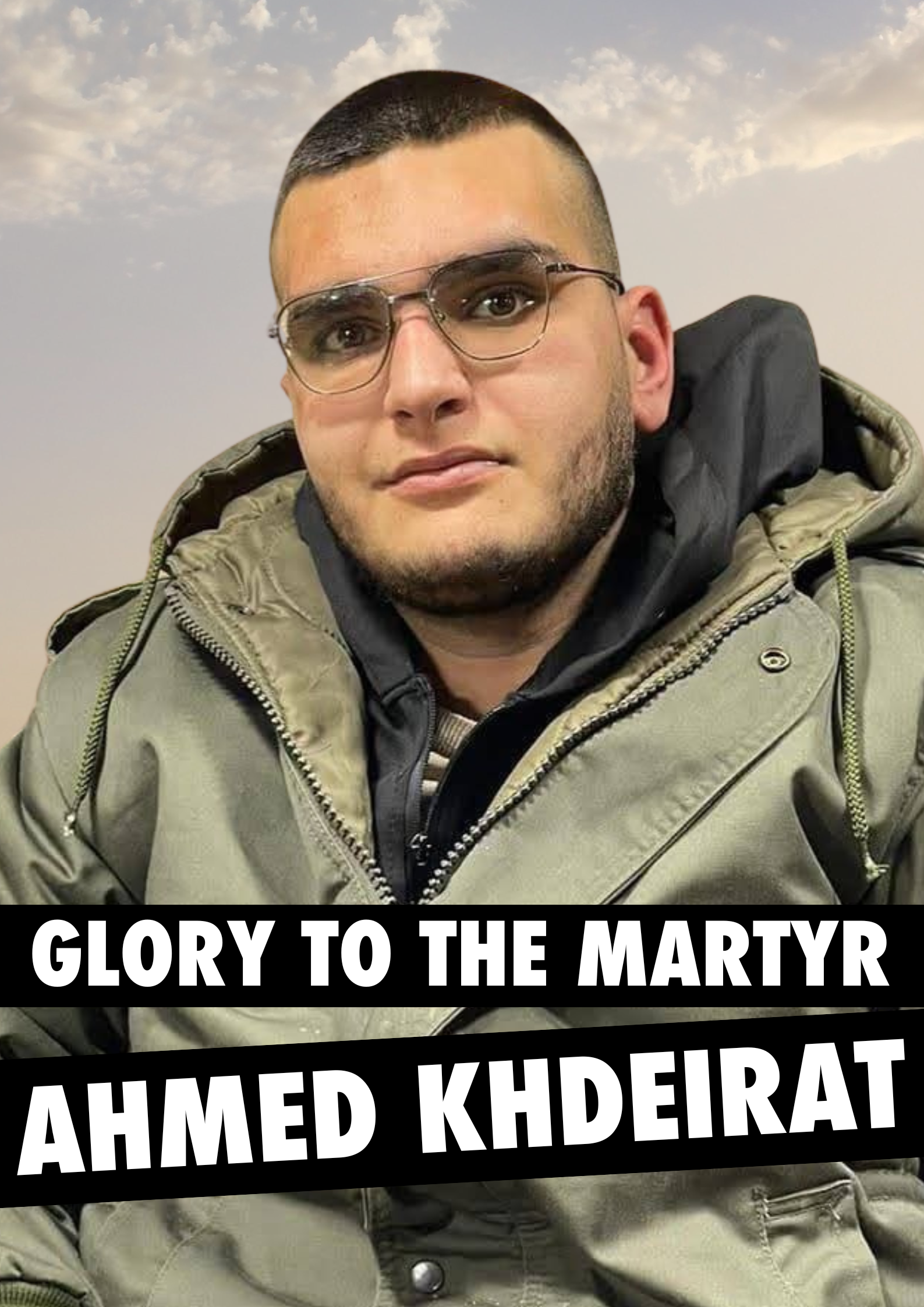

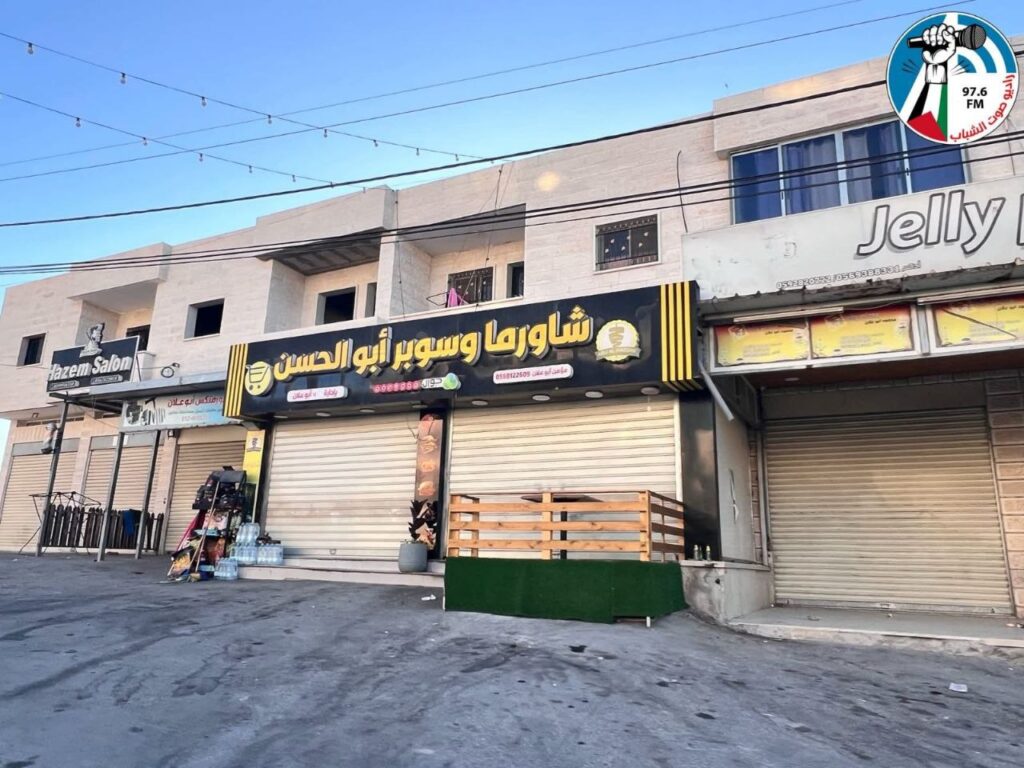
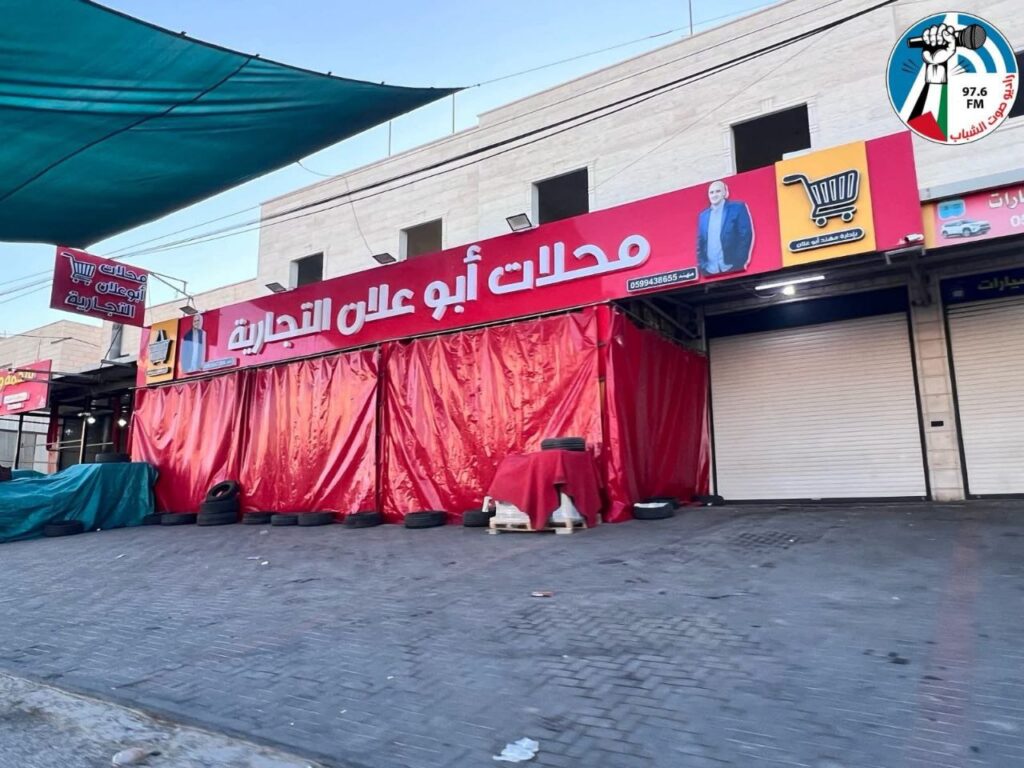

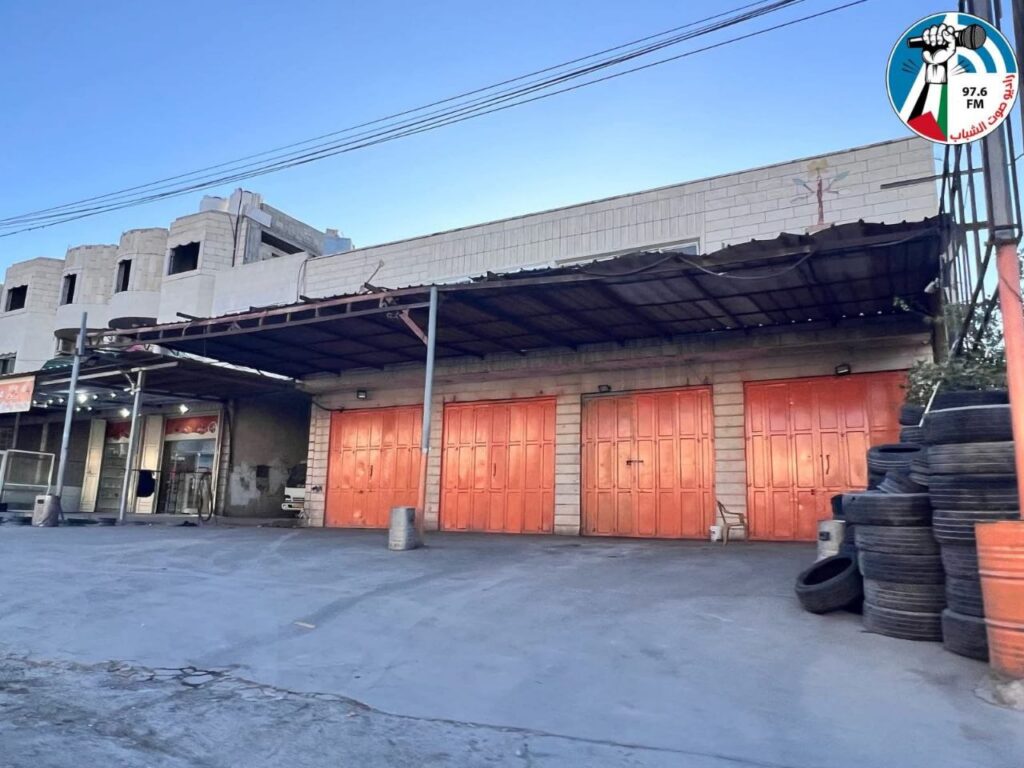
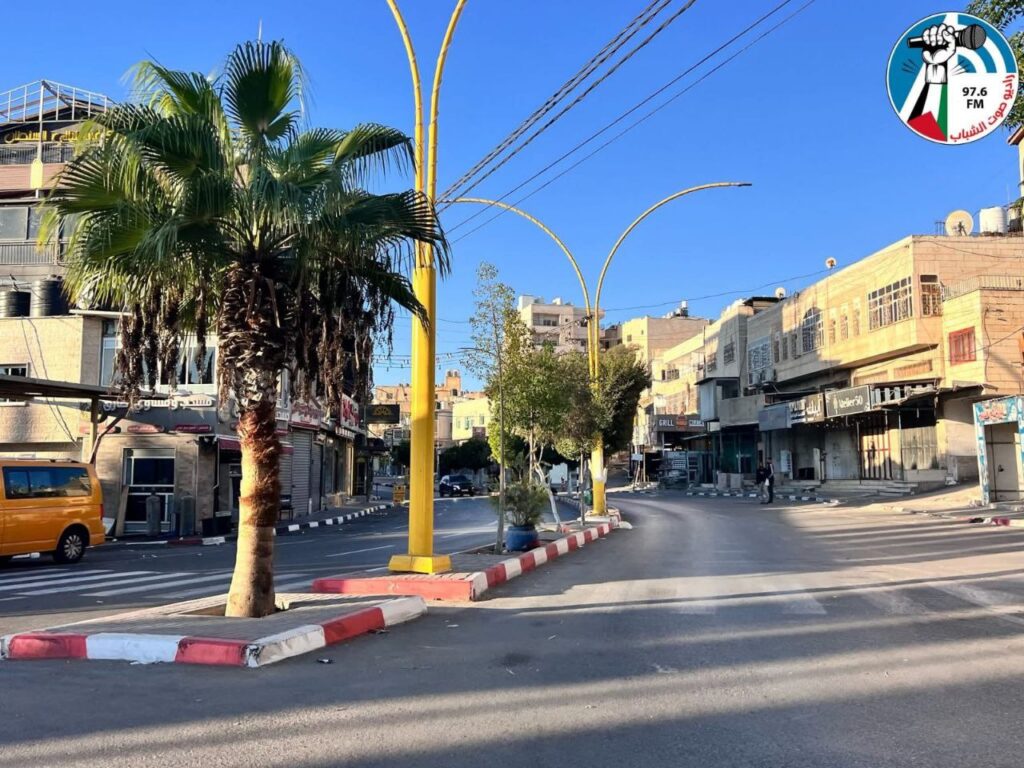
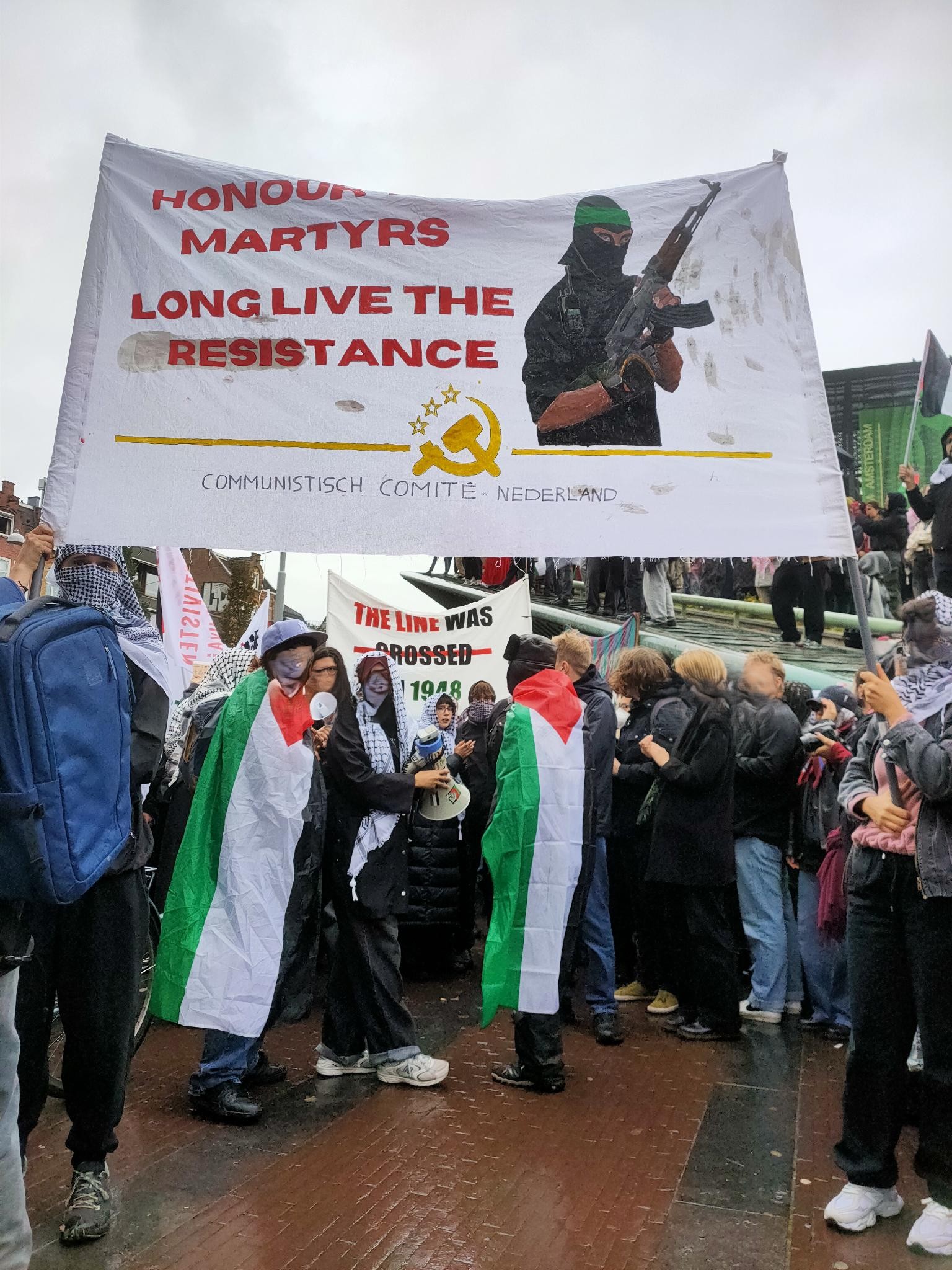
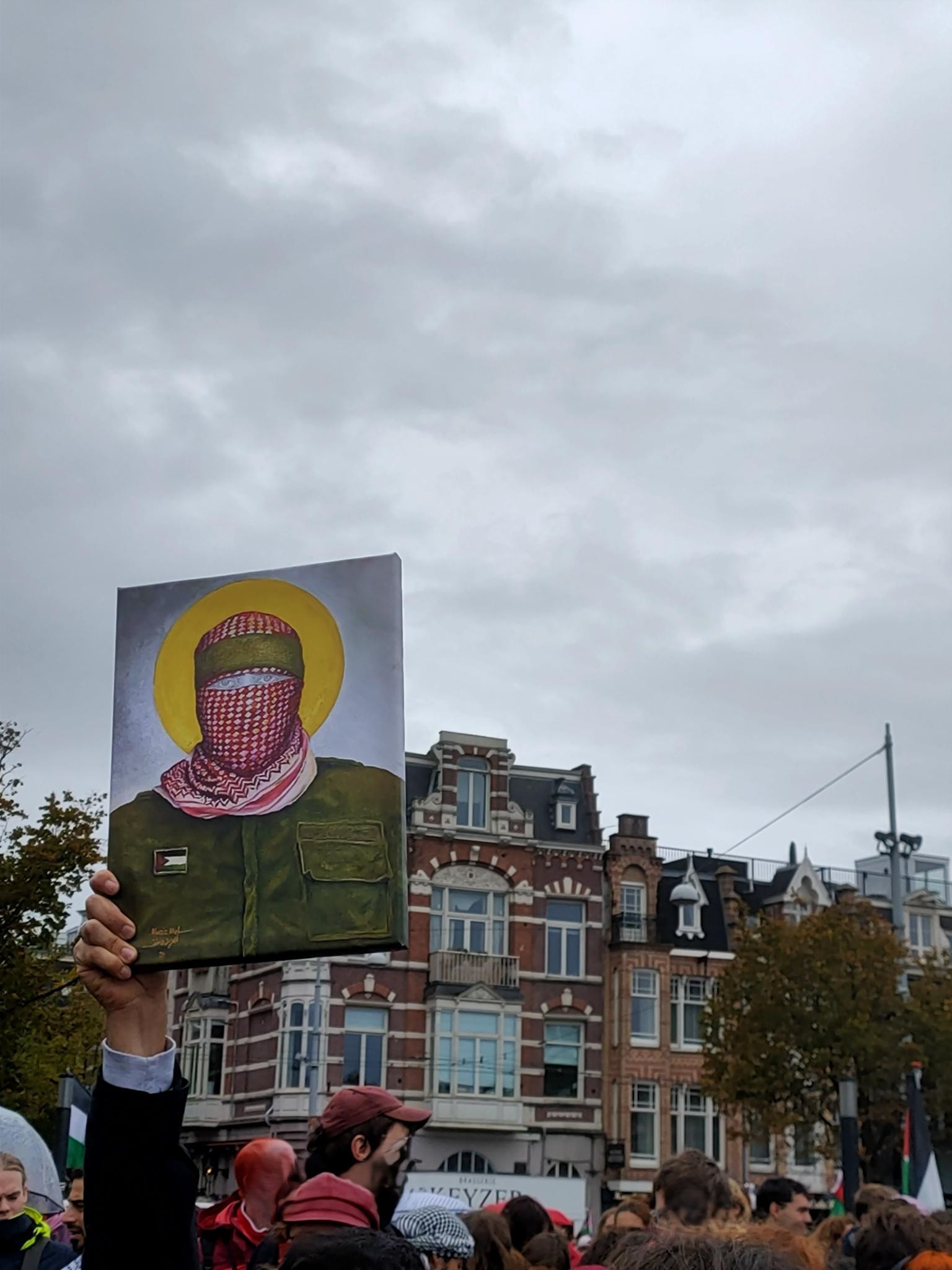 This call and movement has emerged out of the popular movement and mass revulsion against the Zionist entity, which has witnessed an immense turning tide among the Dutch population. In this context, the Red Line demonstration unites around the basic demand of sanctions on Israel.
This call and movement has emerged out of the popular movement and mass revulsion against the Zionist entity, which has witnessed an immense turning tide among the Dutch population. In this context, the Red Line demonstration unites around the basic demand of sanctions on Israel.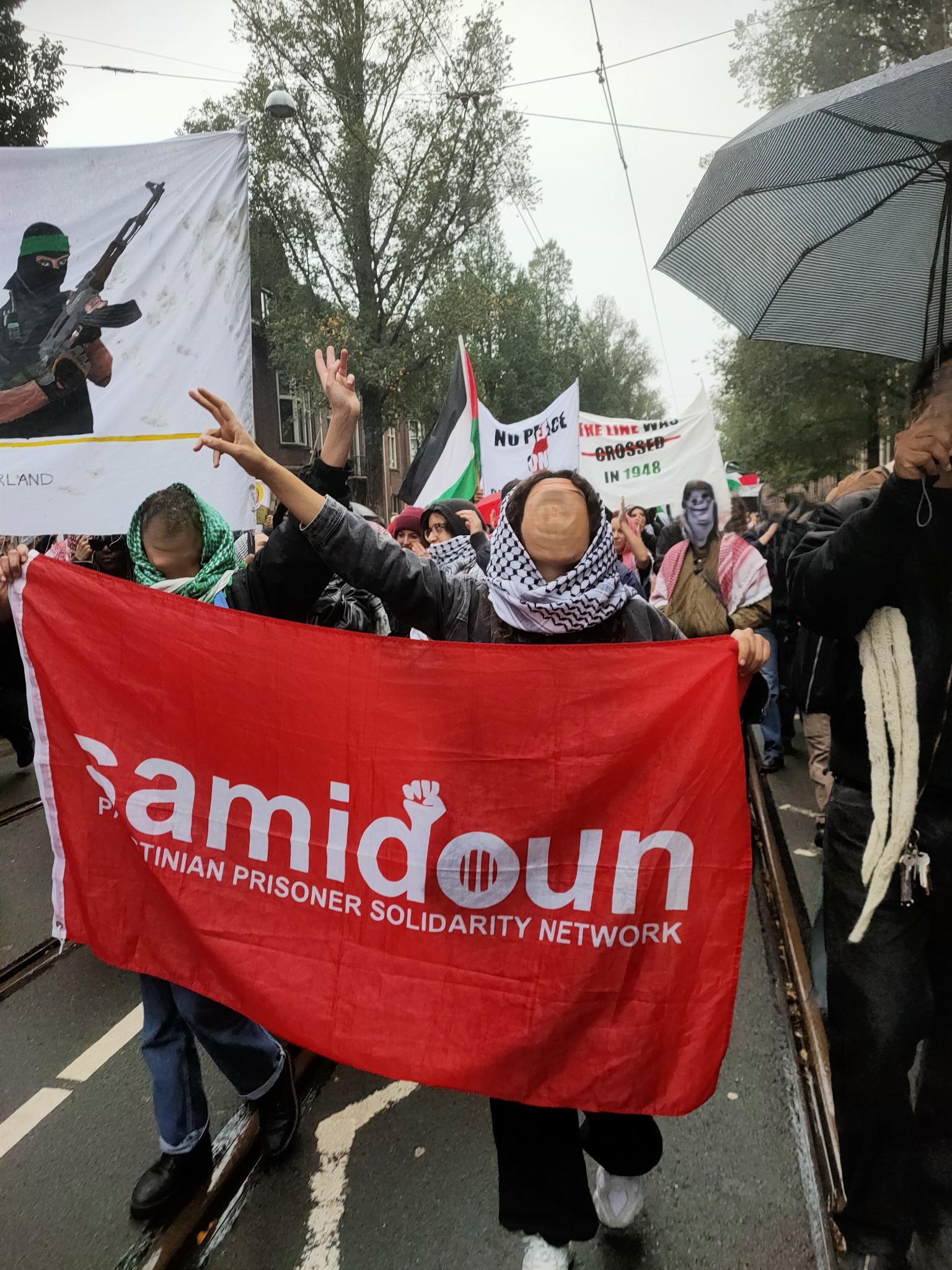

 Today, 7 October 2025, we mark the second anniversary of Al-Aqsa Flood, the great crossing of the Palestinian people and their resistance: the day that changed the world. Two years later, amid the horrific genocide carried out by the Zionist regime with the full involvement and joint responsibility of the United States, France, Britain, Germany, Canada and their fellow imperialist powers, it remains clear that the path forward forged by the fighters on 7 October 2023 is the path to the liberation of Palestine from the river to the sea.
Today, 7 October 2025, we mark the second anniversary of Al-Aqsa Flood, the great crossing of the Palestinian people and their resistance: the day that changed the world. Two years later, amid the horrific genocide carried out by the Zionist regime with the full involvement and joint responsibility of the United States, France, Britain, Germany, Canada and their fellow imperialist powers, it remains clear that the path forward forged by the fighters on 7 October 2023 is the path to the liberation of Palestine from the river to the sea. 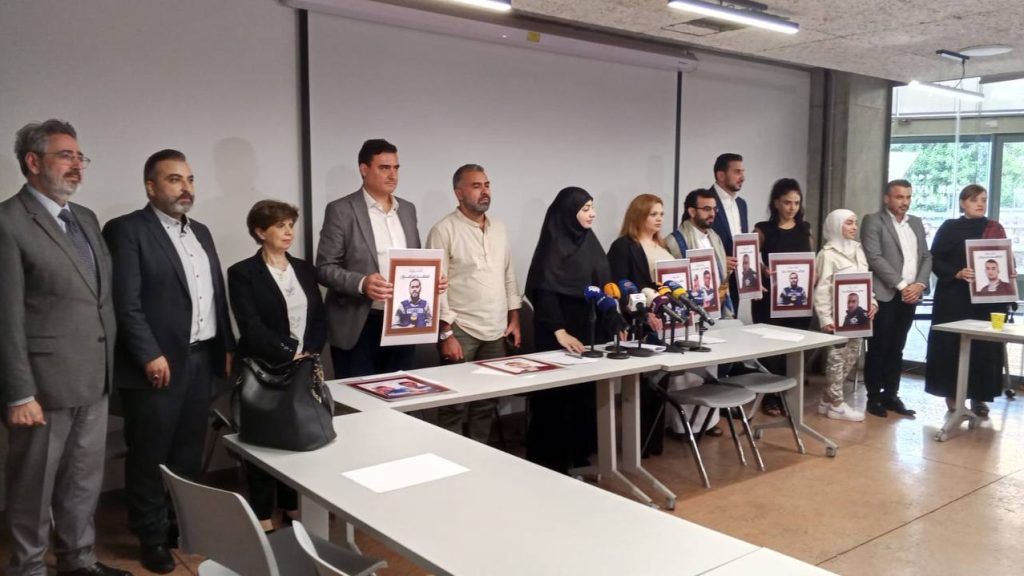
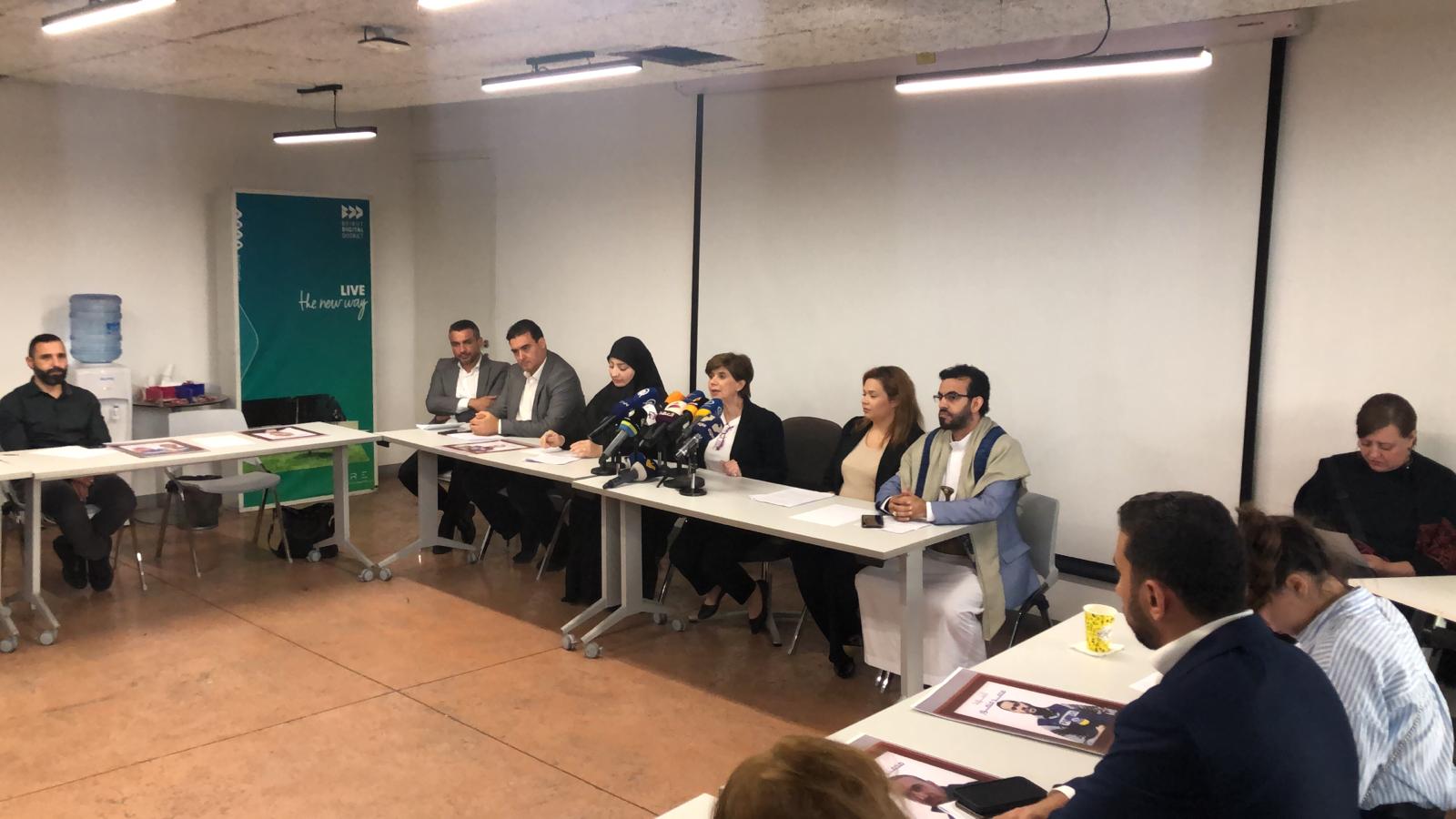
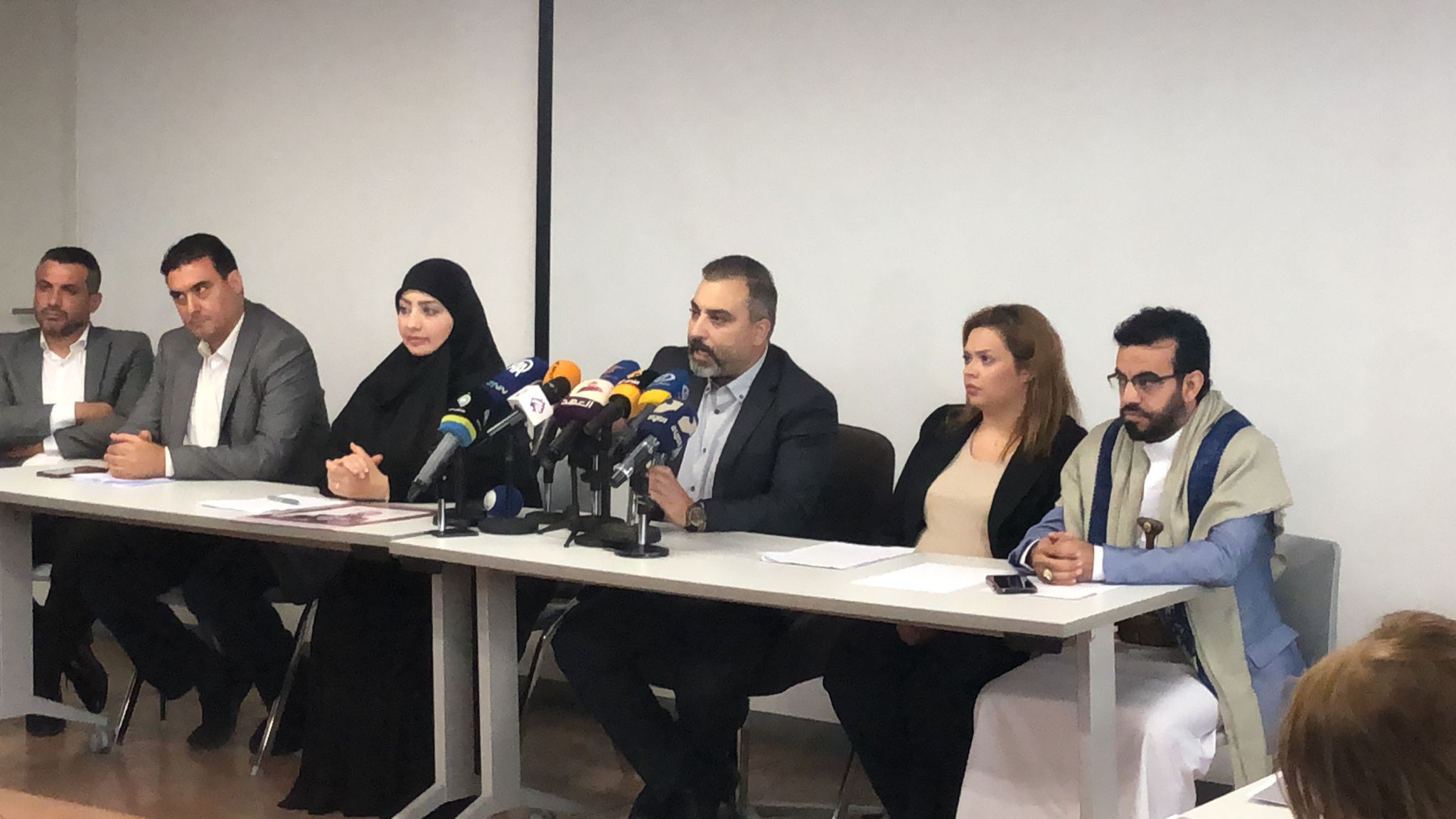
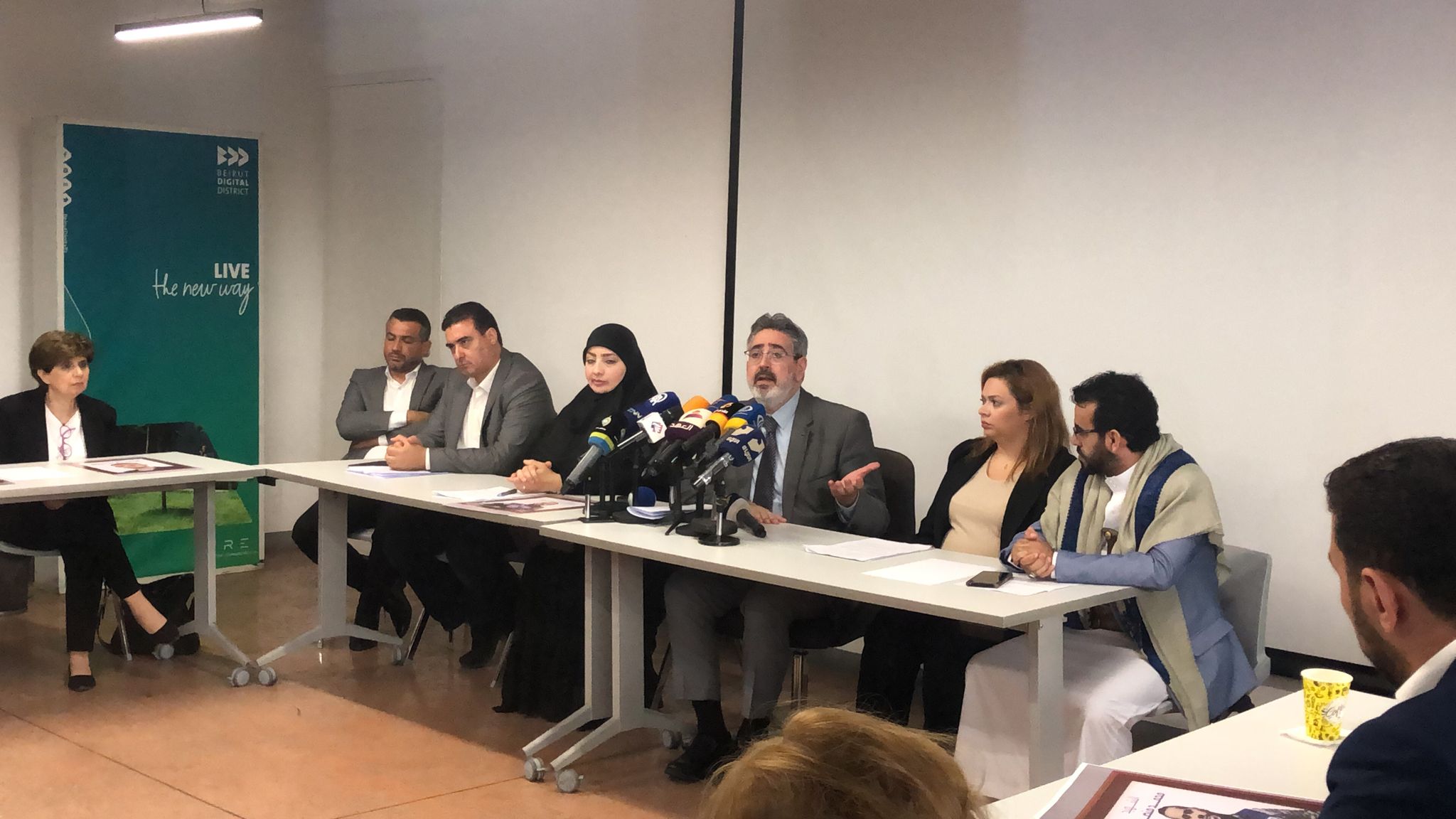
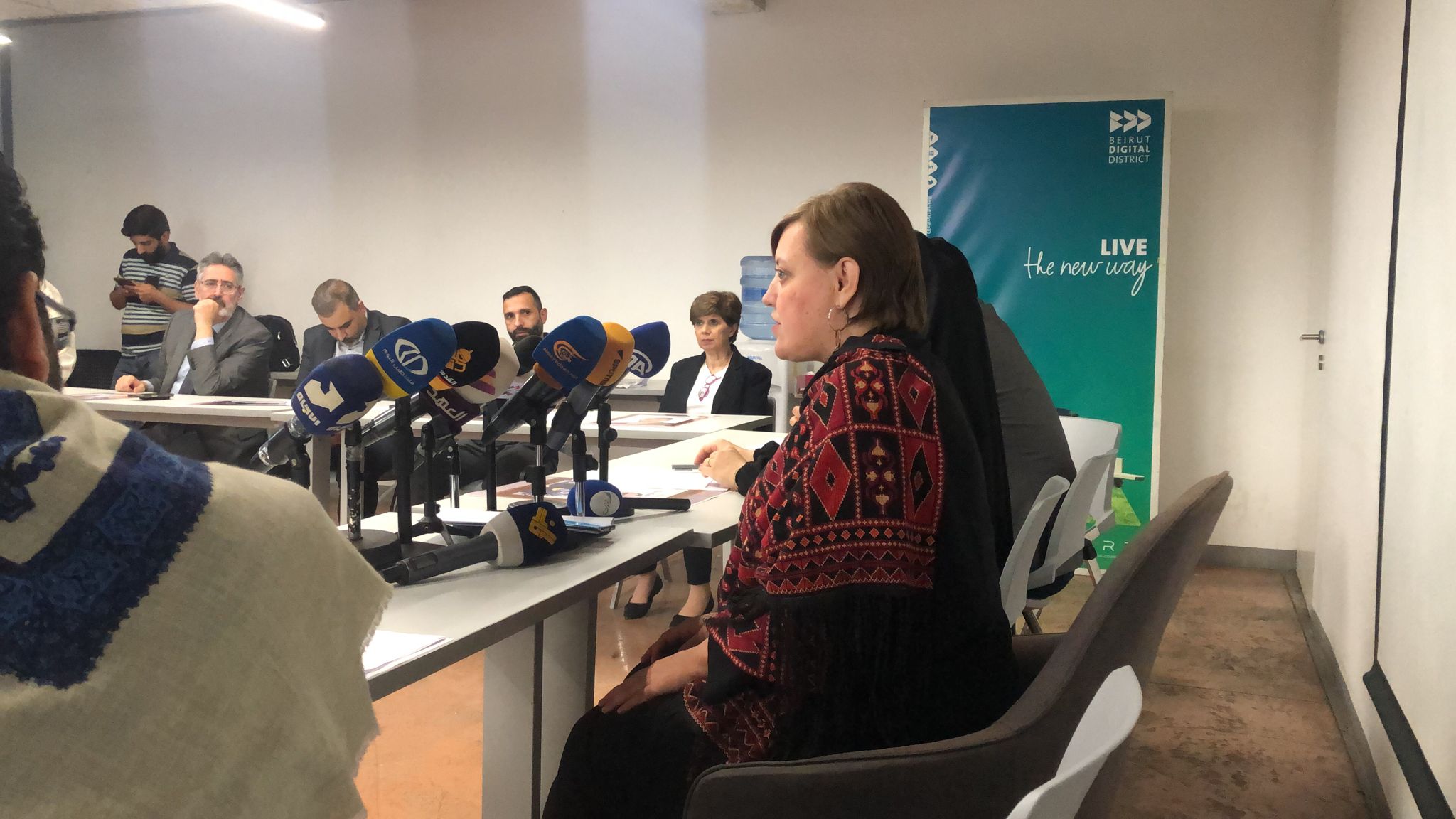 Charlotte Kates noted that the Zionist-imperialist assault on Palestine, particularly on Gaza, includes a systematic policy of targeting journalists and media workers as a method and mechanism of carrying out genocide. She further noted that over 50 journalists are imprisoned inside Zionist jails, many held under administrative detention without charge or trial. Criticizing Western state-sponsored and corporate media, she noted that those responsible for inciting and promoting genocide should be held accountable internationally.
Charlotte Kates noted that the Zionist-imperialist assault on Palestine, particularly on Gaza, includes a systematic policy of targeting journalists and media workers as a method and mechanism of carrying out genocide. She further noted that over 50 journalists are imprisoned inside Zionist jails, many held under administrative detention without charge or trial. Criticizing Western state-sponsored and corporate media, she noted that those responsible for inciting and promoting genocide should be held accountable internationally.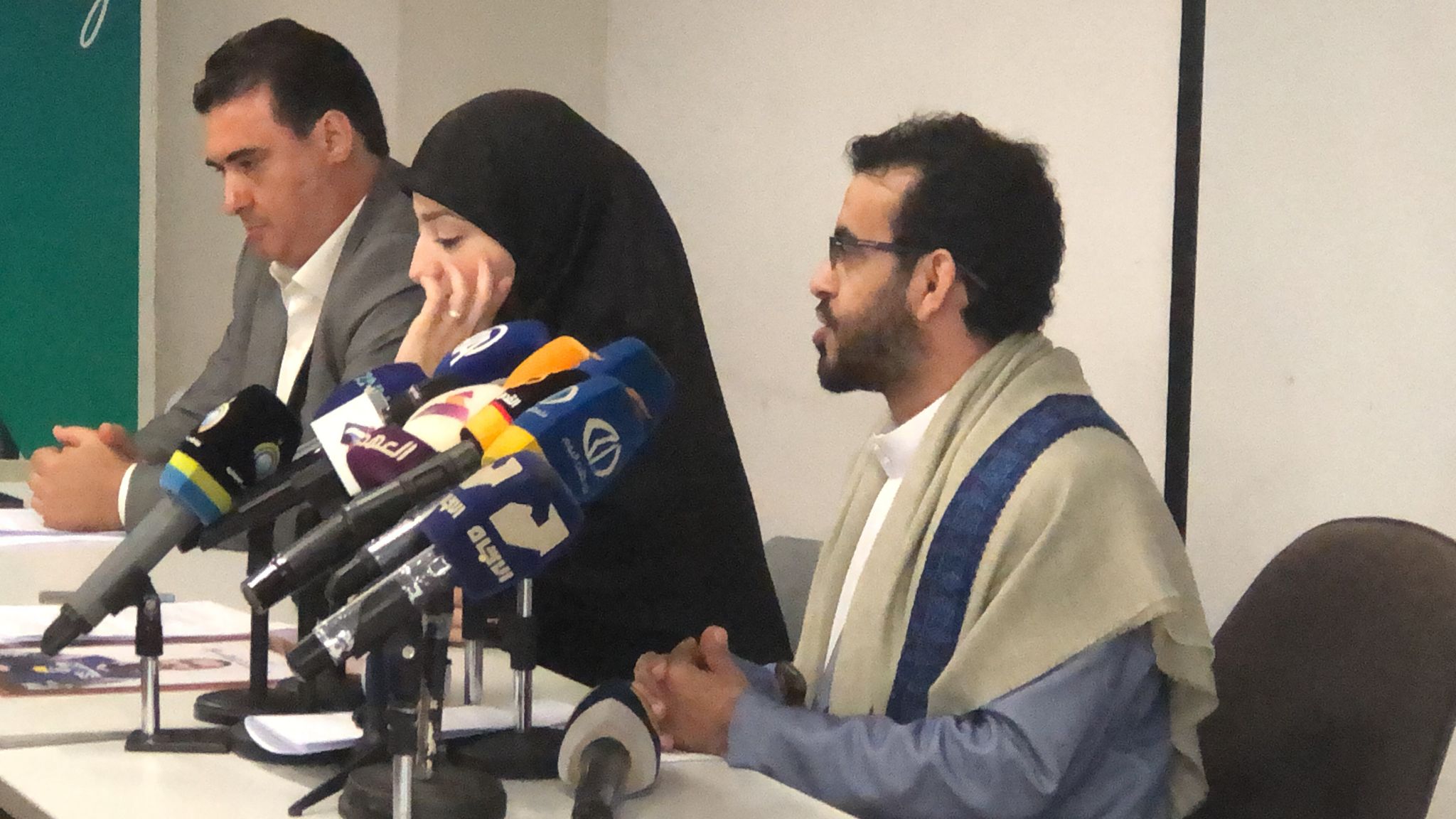
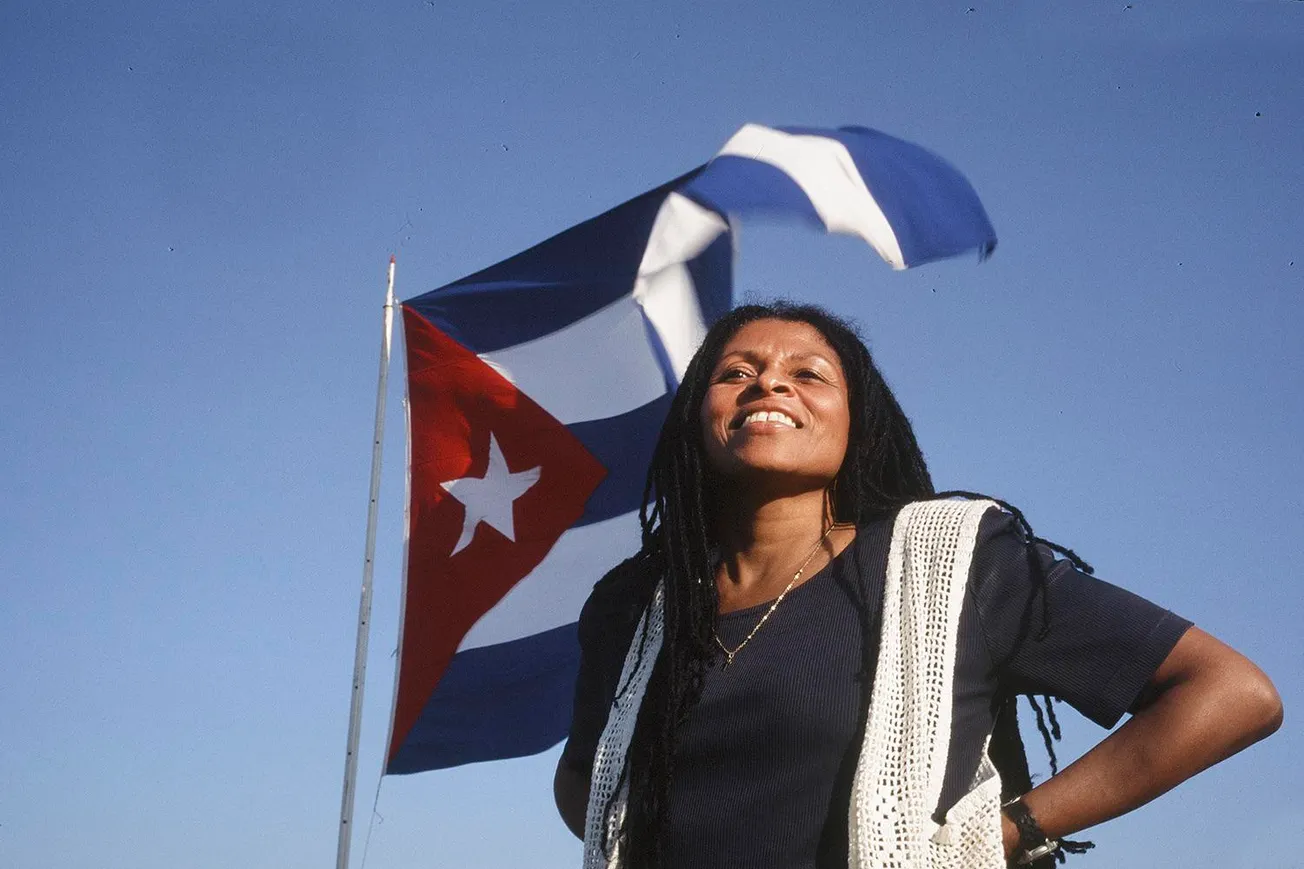
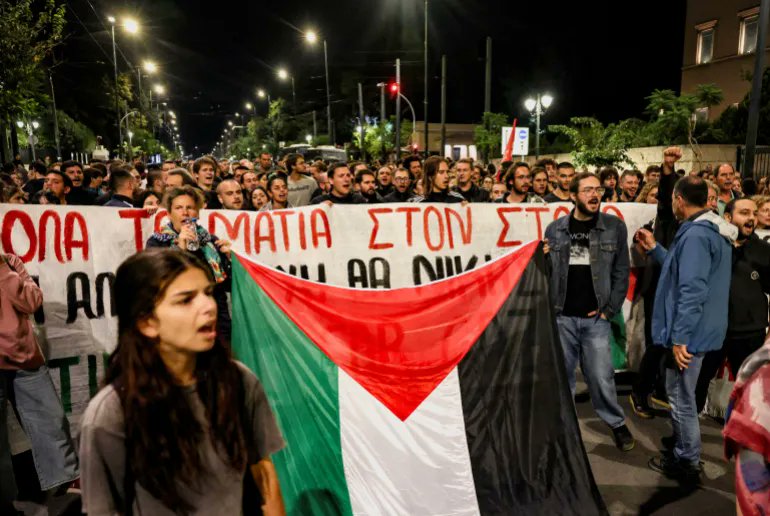
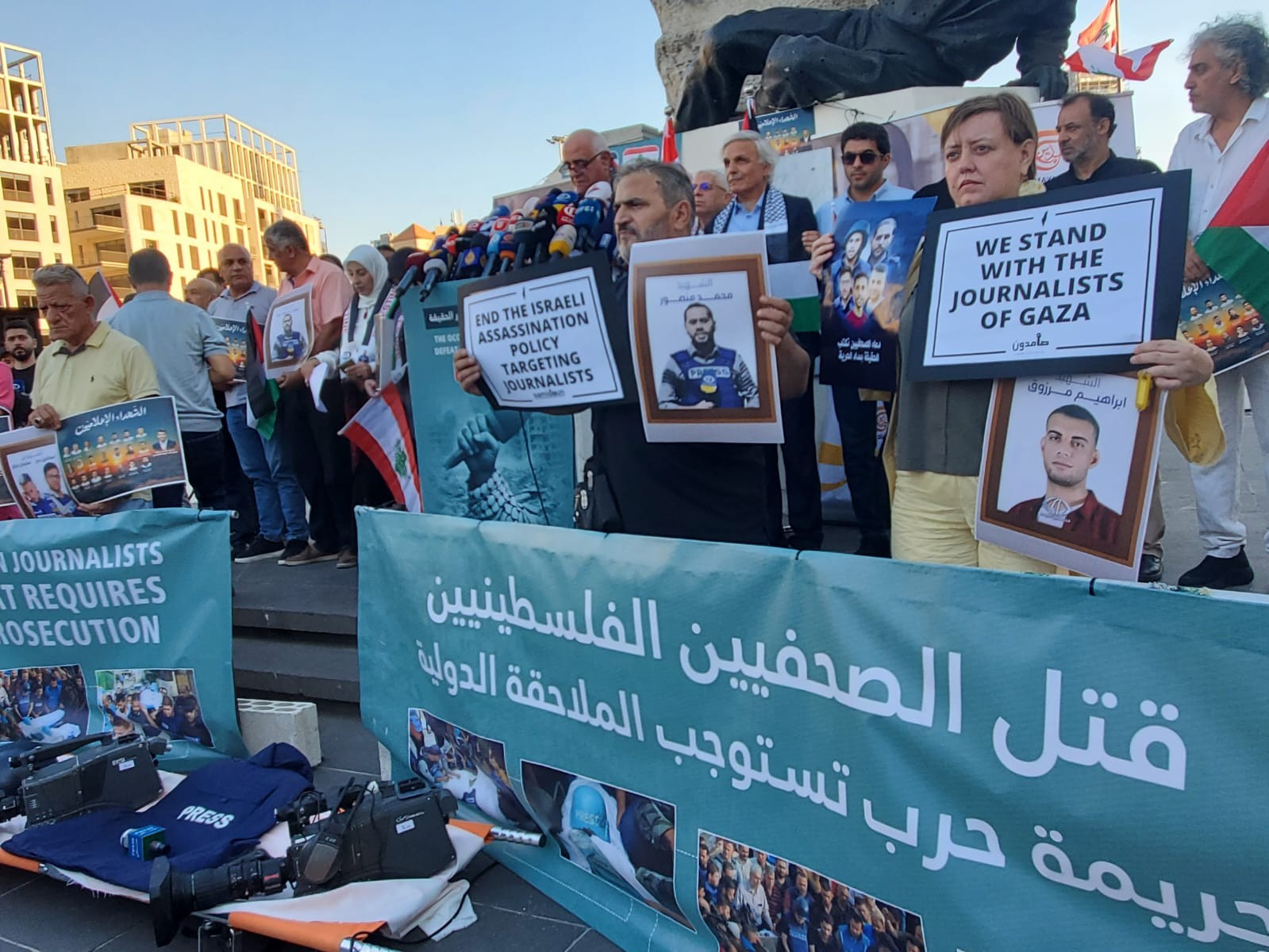 Beirut – Monday, 1 September 2025
Beirut – Monday, 1 September 2025